FRAMLINGHAM COLLEGE SIXTH FORM CURRICULUM
A Level Courses for 2026 Entry
FOR ACADEMIC YEAR 2026/27
Where every pupil creates their own story.

Art and Design
Subject Art and Design
Department Lead Mrs M Clarke-Wilson, MA BEd Director of Art
Exam Board Eduqas
Course Number
A651QS, A656QS, A653QS
You may choose to study Art and Design; pupils can be entered for the specialist endorsed titles of ‘Fine Art’, ‘Photography’, ‘Textile Design’ or even for the broader ‘Art, Craft and Design’ which can allow for responses in more than one specialism, including ‘Graphic Communication’. All endorsed titles combine areas of study which incorporate responses in a wide range of media.
A Level Art and Design offers you the opportunity to creatively develop skills in painting, drawing, sculpture, photography, ceramics, printmaking, textiles, fashion, design, film-making, animation or any media which can allow for an artistic response. Whichever area of study you specialise in; all titles allow for freedom of expression and aim to help you creatively and imaginatively develop ideas and create original artwork which is unique to you.
Who takes A Level Art?
You have probably studied GCSE Art and Design, but this is not always essential. You should, however, have an interest in the basic elements of Art: colour, tone, form and content. You should have an idea about the place of art in culture, both historically and in contemporary society. The course can be what you make of it but a passion for Art is essential from the outset. No matter what your skills set; if you love Art, if you want to learn more about Art, if you want to learn new technical skills, if you want to use your imagination and creativity then A Level Art and Design is for you.
What careers are open to you at the end of the course?
With careers in the creative industries being responsible for an ever-increasing amount of GDP, there are many careers for which Art is an invaluable subject. These might include marketing, architecture, interiors, publishing, advertising, web design, furniture design, film and television, theatre, fashion design, art therapy, game design, illustration, graphic design, typography, packaging design, interaction design, photography or even teaching. Pupils wishing to take further courses in creative subjects will sometimes go on to study a foundation year before applying to degree courses in more specialist areas.
What is taught on the course?
Component 1 – Personal Investigation
This component enables you to generate and develop ideas, research primary and contextual sources, record practical and written observations, experiment with media and processes, and refine ideas towards producing personal outcome(s).
From the beginning of Year 12 you are making work which can count; Component 1 is worth 60% of your final grade. In Year 12 you will start with an introductory course to help pupils develop technical skills appropriate to the level of the national standard.
Component 1 incorporates two major elements: a practical investigation, into an idea, issue, concept or theme, supported by written material. The focus of the investigation must be identified independently by the pupil and must lead to a finished outcome or a series of related finished outcomes. The investigation could be an in-depth study that demonstrates the pupil’s ability to construct and develop a sustained line of reasoning from an initial starting point to a final realisation and relate their work in meaningful ways to relevant critical/contextual materials. supporting studies, practical work and a personal study. Supporting studies and practical work will comprise a portfolio of development work and outcomes based on themes and ideas developed from personal starting points. The personal study will be evidenced through critical written communication showing contextual research and understanding in a minimum of 1000 words of continuous prose, which may contain integrated images.
The work is internally set, assessed by the teachers and externally moderated by the examination board. There will be an end of Component final assessment in exam conditions early in the Spring Term, of Year 13, which will bring together and conclude the major project.
Component 2 – Externally Set Assignment
You will be given an examination paper, on or close to 1st February, in Year 13, which contains themes and suggested starting points. This component is worth 40% of your final grade and allows for opportunities to generate personal outcomes in response to the externally set themes. It incorporates two major elements: preparatory studies and the 15 hour examination. The preparatory studies will comprise a portfolio of practical and written development work. During the 15 hour examination you will produce final outcomes extending from the preparatory studies. The examination usually takes place directly after the Easter holidays in Year 13.


This work is externally set, assessed by the teacher and externally moderated. To enable moderation an exhibition of all your work will be mounted in the department. A selected Summer Exhibition will be created after moderation, together with GCSE, UAL Diploma and Extended Diploma work, which will be open to your parents, friends and relatives and be there for the last day of term .
Do we go anywhere?
We will go on art study visits, usually to galleries, throughout the course. These visits are intended as inspiration for your artwork.
Charges
Please note charges are made for certain materials and added to the end of term bill. They will, of course, be kept to a minimum; parents will be consulted prior to purchase if an expensive item is requested. All other materials costs are covered. Art Study visits will also need to be charged for to cover exhibition entry fees and transport; usually Year 12 have two trips and Year 13 have two trips, this is to provide pupils with preliminary inspiration for each of the components of their course.
It is important to understand that specialist equipment will be required during an Art and Design course, especially to be able to do Prep outside of the classroom and during the holidays.
For Photography, a camera, laptop and software are essential. Fine Artists will need drawing and painting materials. Textiles pupils will need a mannequin and sewing machine, for example.
Level 3 Extended Diploma in Creative Practice, Art, Design and Communication awarded by University of the Arts London
If you have the intention of going into the Creative Visual Arts beyond A Level as further study and then industry or perhaps straight into an apprenticeship, for example. You might consider opting for two A levels in Art and Design in two different endorsed titles. If this is you, then we will need to discuss whether doing the UAL Level 3 Extended Diploma in Creative Practice is the right fit for you. You cannot opt for this pathway, we will need to discuss it with you and decide if it suitable.
UAL Creative Practice Level 3 qualification is an exciting AAQ, somewhat like a BTEC, with 6 Units of work with a focus on the Creative Industries and Sustainability as well as a broader approach to creativity within the visual arts. But this pathway is only suitable for pupils who have every intention of going into the Creative Visual Arts as it will use up two A Level Option blocks. It is not suitable for pupils who need or want a broader education in Sixth Form.


Subject Biology
Department Lead Mr S Lebbon, BSc (Hons) MCCT MRSB PGCE Head of Science
Exam Board OCR
Course Number H420A
The course builds on scientific knowledge and skills developed at GCSE. It integrates theory and practical work, and you will be required to communicate ideas effectively.
The course has been written to follow on from Combined Science, Triple Science, or IGCSE Biology. It is not a requirement to have completed Triple science at GCSE. A Grade 7 or above at GCSE Biology or a Grade 7 - 7 Combined Science is recommended as many of the foundations made in GCSE will be built upon over the A Level course. Most importantly, you should be interested in Biology and be keen to explore the subject in greater detail, welcoming the challenge of practical investigative work.
Within A Level Biology, 10% of the marks available within written examinations will be for assessment of Mathematics (in the context of Biology) at a Level 2 standard, or higher, so it would be helpful for pupils to have achieved at least Grade 5 in GCSE Mathematics.
What kind of pupil is this course suitable for?
This course is suitable for pupils who:
• Have an interest in and enthusiasm for Biology;
• Enjoy learning about all levels of Biology, from the microscale molecular Biology of DNA and respiration, to the anatomy and physiology of organisms, to whole ecosystems such as the Maasai Mara;
• Have a natural curiosity in the science of life and how the natural world works;
• Enjoy the diversity of Biology practicals, from carrying out investigations in the laboratory or as fieldwork out in nature;
• Are interested in the developments of new Biology topics such as stem cells and advances in gene technology and the impact these topics have on society.
What will I learn on this course?
• Develop a greater knowledge and understanding of different areas of Biology and how they relate to each other;
• Develop greater expertise in the area of practical work and the link between theory and experimental work;
• Continue to enjoy and further develop a personal interest in the study of living organisms;
• To appreciate how society makes decisions about scientific issues and how sciences contribute to the success of the economy and society.
• Alongside in depth knowledge of the biological world, you will also develop skills and understanding of scientific methods, data analysis, observation, correlations and causal relationships.
What could I go on to do at the end of my course?
Biology is one of the Russell Group universities’ ‘facilitating’ subjects — so called because choosing them at A-level allows a wide range of options for degree study. The A-Level Biology course will prepare learners for progression to undergraduate study, enabling them to enter a range of academic and vocational careers in biological sciences, medicine and biomedical sciences, veterinary science, agriculture and related sectors. Biology is a requirement for some Psychology degrees and can also be useful for Law or Business Analysis degrees. Biology has strong links with Geography pathways and Sports Science degrees and can improve the chances of university offers in these degrees. It is also a useful qualification when considering entry into non-science subjects at post-18 level. For learners wishing to follow an apprenticeship route or those seeking direct entry into biological science careers, this A Level provides a strong background and progression pathway.
Course
Content
The course content is split into six teaching modules:
Module 1 – Development of Practical Skills in Biology
1.1 Planning, Evaluating and Analysing results from experimentation
1.2 Practical skills assessed in the practical endorsement


Module 2 – Foundations in Biology
2.1.1 Cell structure
2.1.2 Biological molecules
2.1.3 Nucleotides and nucleic acids
2.1.4 Enzymes
2.1.5 Biological membranes
2.1.6 Cell division, cell diversity and cellular Organisation
Module 3 – Exchange & Transport
3.1.1 Exchange surfaces
3.1.2 Transport in animals
3.1.3 Transport in plants
Module 4 – Biodiversity, Evolution & Disease
4.1.1 Communicable diseases, disease prevention and the immune system
4.2.1 Biodiversity
4.2.2 Classification and evolution
Module 5 – Communication, Homeostasis & Energy
5.1.1 Communication and homeostasis
5.1.2 Excretion as an example of homeostatic control
5.1.3 Neuronal communication
5.1.4 Hormonal communication
5.1.5 Plant and animal responses
5.2.1 Photosynthesis
5.2.2 Respiration
Module 6 – Genetics, Evolution & Ecosystems
6.1.1 Cellular control
6.1.2 Patterns of inheritance
6.1.3 Manipulating genomes
6.2.1 Cloning and biotechnology
6.3.1 Ecosystems
6.3.2 Populations and sustainability
Course Assessment
The content of this course is assessed by three written papers:
Paper 1 ‘Biological Processes’ 2h 15mins 37%
Paper 2 ‘Biological Diversity’ 2h 15mins 37%
Paper 3 ‘Unified Biology’ 1hr 30min 26%
The A Level practical skills compose of 12 categories of experiments where pupils are not graded but pass or fail based on their ability to follow methods, use equipment, and analyse their results. Passing this element gives them the OCR Practical Endorsement showing universities or employers they have shown specific competencies in their practical work.


Subject BTEC Business Extended Certificate
Department Lead
Mr K Shelver, B.HMS Head of Economics and Business
Exam Board Pearson
Course Number N/A
BTEC Business can be studied alongside other A Levels subjects. It is designed for learners wishing to go on to further or higher-level study at university, or directly to employment.
• The BTEC Extended Certificate in Business is the equivalent of one A Level.
Pre-requisite knowledge and attainment
Although there are no specific pre-requisite qualifications needed to study the subject, a good level of mathematical skills is an advantage.
Who is the course suited to?
The BTEC course is designed for learners wishing to go on to further or higher-level study at university, or directly to employment. The Extended Certificate carries the same number of UCAS points as an A Level course and is widely recognised by universities and employers.
What will be learnt and what skills will be developed?
BTEC Business offers work-related learning, giving learners an edge and opening the door to higher education or employment, the following areas will be studied throughout the duration of the course:
Modules studied on Extended Certificate
Exploring Business
Developing a Marketing Campaign
Personal Business Finance
OptionalUnit*
*Optional Units which are taken in Year 13 may include:
• Recruitment and Selection Process;
• Investigating Customer Service;
• Market Research;
• The English Legal System;
• Work Experience in Business.
Transferable skills are developed throughout the courses, such as: teamwork, creative problem solving and research.
There is a clear focus on developing the following employability skills:
• cognitive and problem-solving skills: using critical thinking, approaching non-routine problems, applying expert and creative solutions, using systems and technology
• intra-personal skills: communicating, working collaboratively, negotiating and influencing, self- presentation
• interpersonal skills: self-management, adaptability and resilience, self-monitoring and development.
“BTECcoursesgiveyoureal,hands-onexperience.It’swhatIcall‘learningbydoing’andgivesyoutheskills today’semployersarelookingfor.”
— Peter Jones CBE, Entrepreneur, Dragons Den.


Subject Chemistry
Department Lead Mr S Lebbon, BSc (Hons) MCCT MRSB PGCE Head of Science
Exam Board OCR
Course Number H432A
The course builds on the ideas and skills developed at GCSE. It has been written to follow on from the Combined Science GCSEs, so it is not essential to have studied Chemistry as a separate full GCSE. A Grade 7 or above at GCSE Chemistry or Combined Science is recommended, as well as Grade 7 in GCSE Mathematics.
What will I learn on this course?
• The course looks at what all matter is made of, the chemicals that make up living organisms and how different substances interact.
• You will learn about how Chemistry relates to other sciences, as well as its social, environmental, economic and technological implications.
• You will learn new practical skills and how to solve problems using these skills.
What kind of pupil is this course suitable for?
This course is suitable for pupils who:
• Have an interest in, and enjoyment of Chemistry.
• Want to use Chemistry to support other subjects, or to provide a stepping stone towards the career of their choice.
What could I go on to do at the end of my course?
• A degree or other higher education course in chemistry, medicine, veterinary science, genetics, pharmacy or environmental science are just a few of the many options available. For medicine and veterinary medicine, most universities insist that pupils have studied A Level Chemistry.
• Employment such as in the research departments of pharmaceutical or biotechnology industries, or laboratory work within a hospital.
Chemistry is regarded as one of the most rigorous academic subjects, demanding that pupils have a broad range of skills and are prepared to work hard. Successful pupils will discover at the end of the course that people possessing such attributes are much sought after by both employers and universities. Consequently, people with chemistry-based qualifications have a very low rate of unemployment.
Year 12
Module A: Foundations in Chemistry
Elements, compounds and reactions, quantitative chemistry, acids and bases, bonding and structure
Module B: Periodic Table and Energy
Groups 2 and 7, qualitative analysis, enthalpy changes, reaction rates
Module C: Core Organic Chemistry
Hydrocarbons, alcohols, halgenoalkanes and analytical techniques
Year 13
Module A: Physical Chemistry and Transition Elements
Quantitative study of equilibrium and reaction rates, pH and buffer solutions, energy and entropy, electrode potentials and redox, transition metals
Module B: Organic Chemistry and Analysis
Aromatic, carbonyl, and nitrogen compounds, carboxylic acids and esters, polymers, organic synthesis, chromatography and nmr spectroscopy.
Assessment and Practical Skills
There is no controlled assessment. The content of the course is assessed at the end of Year 13 by way of three separate written papers, with a total duration of six hours. The A Level practical skills are assessed throughout the two year course and lead to a separate pass/fail component of the A Level, unrelated to the grade achieved in the written exams.


Subject
Classical Civilisation
Department Lead Ms A De Bassano, MA Teacher i/c Classical Civilisation
Exam Board
Course Number
OCR
H408
Classical Civilisation has been designed to provide learners with a broad, coherent and rewarding study of the literature and culture of the classical world. It offers learners the opportunity to study elements of the literature, visual/material culture and thought of the classical world, and acquire an understanding of their social, historical and cultural contexts.
This A Level course will encourage learners to:
• Acquire a sophisticated level of knowledge and understanding of the literature and culture of the classical world through studying a diverse range of ancient material and making connections and comparisons between them.
• Understand classical literature, thought and material culture in its context; including how issues and values relevant to the society in which they were created are reflected in ancient sources and materials.
• Further develop skills of critical analysis and evaluation and apply these to the range of source materials studied in order to gain insight into aspects of the classical world.
• Articulate an informed response to the material studied, using a range of appropriate evidence to formulate coherent arguments with substantiated evidence based judgements .
• Acquire a sound basis for further study of the classical world.
Content Overview
Component 1: The world of the hero
In this compulsory component, pupils study either Homer’s Iliador Odysseyand Virgil’s Aeneid.
Component group 2: Culture and the arts
The components in this group involve study of visual and material culture, and (except for Greek art) literature in translation.
Pupils study one of:
• Greek theatre
• Imperial image
• Invention of the barbarian
• Greek art.
Component group 3: Beliefs and ideas
Components in this group involve study of an area of classical thought, along with either literature in translation or visual/material culture.
Pupils study one of:
• Greek religion
• Love and relationships
• Politics of the Late Republic
• Democracy and the Athenians.
The course is assessed via examinations:
• Component 1: 40% (2 hours 30 minutes)
• Component 2: 30% (1 hour 45 minutes)
• Component 3: 30% (1 hour 45 minutes)
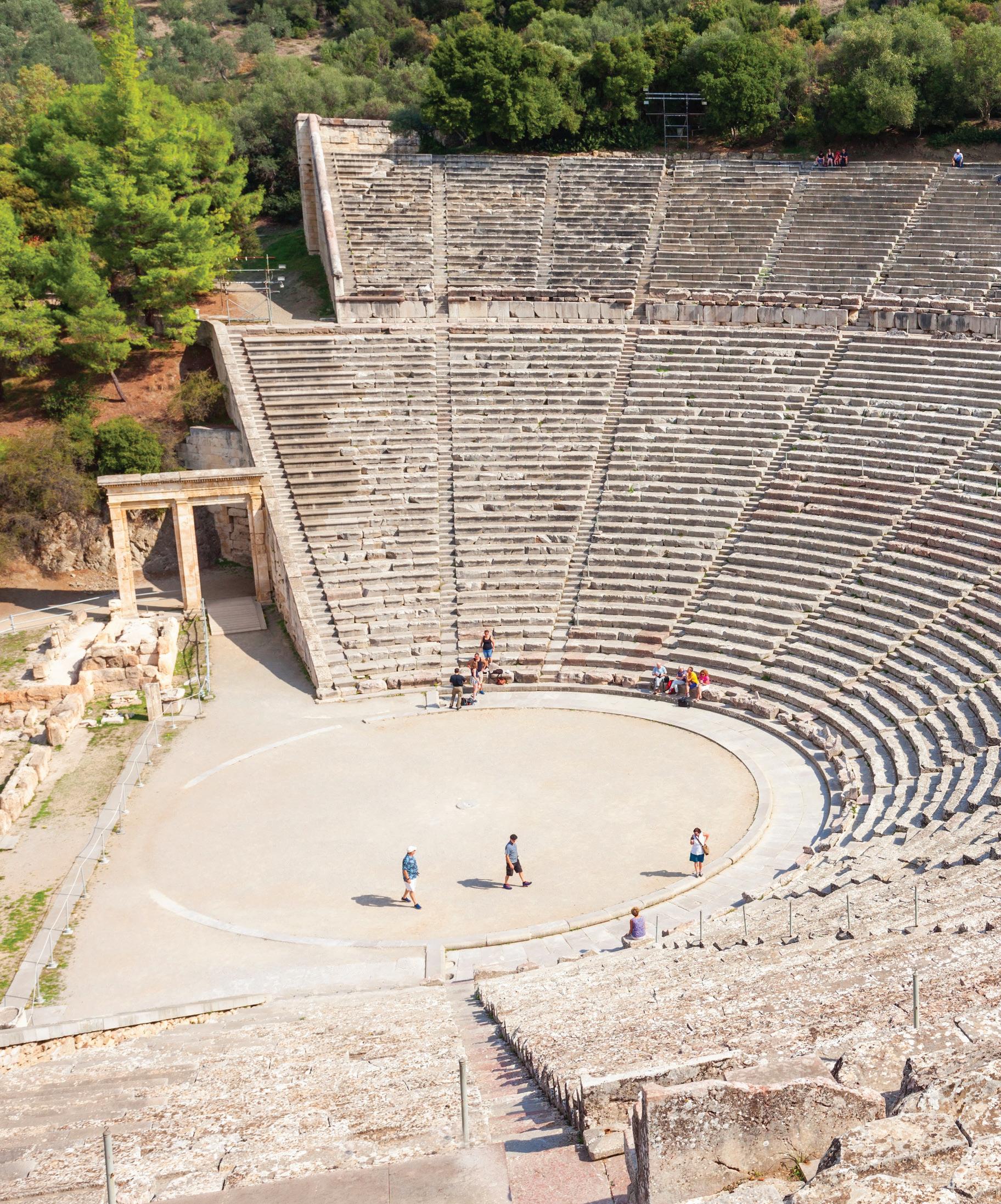

Subject Computer Science
Department Lead Mr M Lorimer, BSc (Hons) Director of Computer Science
Exam Board
Course Number
If you have studied Computing before, we require at least a Grade 5 at GCSE and as the course requires the ability to think logically, a minimum of a Grade 5 in Mathematics at GCSE is required.
If you have not studied Computing before but have worked independently on your skills, you will meet with the Computing Department to assess your suitability for the course. The key desirable qualities are a genuine interest in the subject area.
What will I learn on this course?
Candidates develop their knowledge and understanding of computer systems, the principles of computing (including programming) and how these are applied to the solution of problems. Candidates gain an understanding of systematic methods – such as the use of algorithms and test strategies, the maintenance of computer systems, and the skills associated with documenting solutions – and further develop skills associated with applying this knowledge and understanding to producing computer-based solutions to real problems.
The aim of Computer Science is to encourage candidates to develop:
• The capacity to think creatively, innovatively, analytically, logically and critically,
• An understanding of the organisation of computer systems, including software, hardware, data, communications and people,
• The ability to apply skills, knowledge and understanding of computing (including programming), in a range of contexts to solve problems,
• Skills in project and time management,
• The capacity to see relationships between different aspects of the subject, and perceive their field of study in a broader perspective,
• An understanding of the consequences of using computers, including social, legal, ethical and other issues,
• An awareness of emerging technologies and an appreciation of their potential impact on society.
Who is suited for this course?
The OCR Computer Science A Level contains less ICT but more programming, algorithms, problem-solving, thinking skills and mathematics. There is also a heavy focus on the theory of how computers work. The level of detail required for the course lends itself to a highly motivated pupil who is
intrinsically interested in the subject area of Computer Science.
What could I go on to do at the end of the course?
In today’s workplace, those with knowledge and skills in Computer Science have the opportunity to pursue new and exciting careers and to be instrumental in the conception of computer systems that increasingly shape work and leisure activities. These include careers such as 3D animator, games developer, graphic designer, network administrator, programmer, software developer, system analyst and web designer. The course strongly prepares you for a degree or higher education course in a relevant discipline or to immediately acquire an industry entry level job.
The Course
The course consists of three components, two external exams taken at the end of Year 13 and a programming project that is completed over the duration of the course.
2.5
• The characteristics of contemporary processors
• Software and software development
• Exchanging Data
• Data types, data structures and algorithms
• Legal, moral, cultural and ethical issues.
• Elements of Computational Thinking
• Problem Solving and Programming
• Algorithms to solve problems and standard algorithms
• Analysis of the problem
• Design of the solution
• Developing the solution • Evaluation
The Programming Project
Ever wanted to code your own game, app, computer simulation or website completely from scratch? The programming project component of the course allows you to create a piece of software of your own choosing, you then follow this project right from the initial analysis and research of it through to the development and evaluation phase.

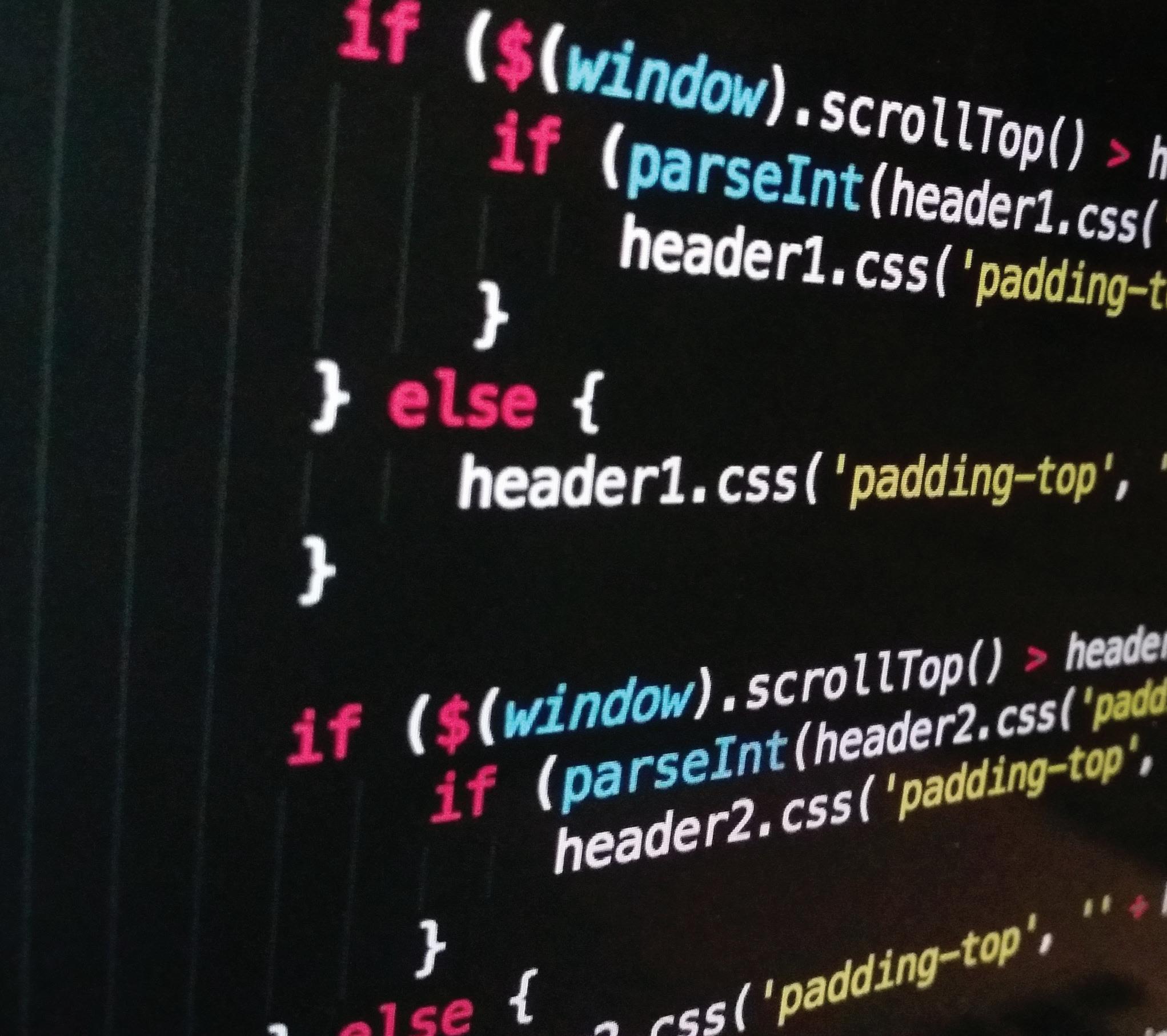
Design and Technology
Subject Design and Technology
Department Lead Miss M Flack, BA Director of Design and Technology
Exam Board Eduqas
Course Number
A602QS
This A Level provides entry to an unprecedented range of specialisms, skills – both traditional and digital – and careers.
Eduqas Art & Design - Three-Dimensional Design
This title is designed to promote learning across a variety of experiences and through various processes, tools, techniques, materials and resources to generate different kinds of evidence of working and outcomes. Three-Dimensional Design covers a particularly wide selection of activities ranging in scale from jewellery and homewares to architectural and environmental design. Other aspects include furniture and product design, interior and graphic design, or use of CAD-CAM.
The course enables learners to develop practical skills while also encouraging design thinking. An inspiring, rigorous and practical subject firmly rooted in the skills required to design and make high quality innovative products that are fit for purpose and demonstrate knowledge and understanding. Learners identify market needs and opportunities for new products, initiate and develop design solutions, and make and test prototypes using a wide range of materials, processes and skills. An awareness of sustainability and wider issues in design is also fostered and developed through sustained and inquisitive study of designed objects and manufacturing processes.
How will the course help me in the future?
Equipping pupils with skills and knowledge that prepares them for higher education and industry, can lead to further study and careers in a range of fields: particularly in creative and technical domains including product design, mechanical and civil engineering, architecture and interiors, or furniture and homewares. Many recent leavers have gone on to study the subjects listed above at university, and embarked on careers in those fields.
What will I learn?
Through their projects pupils will learn skills ranging from critical thinking and problem solving, to creativity and communication, as well as a wide range of working and practical skills such as research, collaboration, self-direction, designing in 2D and 3D, and handicrafts.
Assessment Structure
The course is split into two components. Each Component is internally assessed and externally moderated by Eduqas. There is no ‘theory’ exam:
Component 1: Personal Investigation
Starting in Year 12 and culminating in Year 13, this component consists of a major, in-depth, practical, critical and theoretical investigative project/ theme-based portfolio and outcome/s with integrated extended written critical and contextual analysis (1000 words minimum). Assignments, briefs or themes undertaken are to be determined by the learner and teacher.
Component 2: Externally Set Assignment
This component is based on preparatory study that leads to a 15 hour period of sustained focus in which the learner will produce a response to a chosen visual or written stimuli.
Pleasenote:Therewillbeachargeraisedformaterialsusedforpupilcoursework.


Subject Drama and Theatre
Department Lead Mr J Russell, BA MA PGCE Head of Drama
Exam Board AQA
Course Number 7262
Although GCSE Drama is an excellent preparation for the A Level course, creative pupils with a passion for film, literature as well as theatre will find this course well-suited to developing their skills and understanding of how to create, analyse and evaluate live theatre performances.
Pupils who enjoy creative collaboration, working alongside others and negotiating ideas are also encouraged to consider this exciting and unique course as it nurtures a sense of group responsibility for outcome as pupils work together to build impressive theatre pieces.
The Qualification
The qualification has three components, one that focuses on devising, one that focuses on performing or designing skills and one that focuses on practical exploration of texts to interpret them for performance. We complete 40% of the examination by the end of the first year.
Component 1 - Understanding Drama and Theatre
40% of the qualification – Summer Term Year 2
Task: 3 hours written examination
This component has three aspects:
• Section A: Set Text – Antigone
You will answer one extended response question (from a choice of two) on a specified character or theme of the text. You will have a choice of whether to answer from the perspective of an actor, director or designer.
• Section B: Set Text – OurCountry’sGood
You will answer three short questions on an unseen extract of the text and must consider all aspects: performing, directing and designing.
• Section C: Live Theatre Evaluation
You will have a choice of four questions requiring you to analyse and evaluate one of the performances you have seen. We will give you a choice of at least two productions over the length of the course.
Component 2 - Creating Original Drama
30% of the qualification – Spring Term Year 1
Task: Using one key piece of stimulus and a theatre practitioner as inspiration you will create a devised performance. Your work in this component will be internally assessed and externally moderated.
This component is assessed in two ways:
• The performance: You can choose a performer, director or a designer route here. This performance will take place in front of a live audience. (20 marks)
• A portfolio: You will put together a portfolio to support this performance which can be written or typed (3000 words maximum) or a mix of recorded, visual or written evidence. This will outline the process of moving from original ideas and responding to the stimulus, through rehearsal and refinement to evaluation of the performance itself.


Component 3 - Theatre Makers in Practice
30% of the qualification – usually Spring Term Year 2
Task: Explore three contrasting extracts from existing scripts as performer, director or designer (or a combination of all three).
This component has two externally assessed elements:
• A performance/design realisation of one key extract from a performance text. This could be a monologue, duologue or a group piece.
• A reflective report of the process of moving from script to performance, detailing style and genre, context and the work and methodology of the practitioner. This can be written or typed (3000 words maximum) or a mix of recorded, visual or written evidence.
Further Matters
This is an exciting opportunity to extend your knowledge and practice of Drama and Theatre. Alongside the classroom study there are opportunities to produce, direct and perform your own devised work as well as take part in scripted performances from a variety of challenging and diverse performance texts.
We will also be visiting the theatre giving you experience of exciting and varied professional theatre both locally and further afield. Recent theatre trips have been to contemporary performances by Punchdrunk and Gecko Theatre as well as more classic texts such as Antigone and Cat on a Hot Tin Roof.
Theatre practitioners visit the College to provide stimulating workshops and there are opportunities throughout the year to hone your (performance or technical) skills in co-curricular productions and direct pupil productions. The College also offers the opportunity of developing acting and public speaking skills with LAMDA examinations as an optional extra and pupils are encouraged to enter for the National Youth Theatre auditions in the Spring.
It should be noted that there is a cost attached to theatre trips to a maximum of £90 per term and pupils must experience live theatre throughout the course.


Subject Economics
Department Lead Mr K Shelver, B.HMS Head of Economics and Business
Exam Board AQA
Course Number 7136
Economics is an academic subject highly valued by both universities and employers. Successful pupils will have a genuine interest in current affairs; it relates to every aspect of our lives: from the decisions we make as individuals or families to the structures created by governments and firms. Economics can be observed every day in the newspapers and on TV programmes.
Pre-requisite knowledge and attainment
We assume no prior knowledge and as such it is not necessary to have studied the subject at GCSE, However, we strongly advise pupils to have a good standard of English and Mathematics for studying the course.
What will be learnt/which skills will be developed?
You will learn to apply economic theory to support analysis of current economic problems and issues. You will develop the knowledge and skills needed to understand and analyse data, think critically about issues and make informed decisions. You will also build upon your quantitative skills and appreciate that, when evaluating arguments, both qualitative and quantitative evidence are important.
What does the course involve?
You will study Sections 1 through to 9 in the first year and 10 through to 16 in the second year which leads to an A Level in Economics.
Course content
The Operation of Markets and Market Failure:
1. Economic methodology and the economic problem
2. Price determination in a competitive market
3. Production, costs and revenue 4. Competitive and concentrated markets
5. The market mechanism, market failure and government intervention in markets
The National Economy: 6. The measurement of macroeconomic performance 7. How the macro economy works 8. Economic performance 9. Macroeconomic policy


Individuals, Firms, Markets and Market Failure:
1. Individual economic decision making
2. Perfect competition, imperfectly competitive markets and monopoly
3. The labour market
4. The distribution of income and wealth: poverty and inequality
The National and International Economy:
5. Financial markets and monetary policy
6. Fiscal policy and supply-side policies
7. The international economy
Questions
• Section A: data response questions requiring written answers, choice of one from two contexts worth 40 marks.
• Section B: essay questions requiring written answers, choice of one from three worth 40 marks.
Questions
• Section A: data response questions requiring written answers, choice of one from two contexts worth 40 marks.
• Section B: essay questions requiring written answers, choice of one from three worth 40 marks.
Questions
• Section A: multiple choice questions worth 30 marks.
• Section B: case study questions requiring written answers, worth 50 marks.


Subject English Literature
Department Lead Mr L Goldsmith, MA MBA PGCE Head of English
Exam Board AQA
Course Number 7712B
A Level English at Framlingham College is very much a Literature, rather than a Language, course. If you have enjoyed and been successful at GCSE or IGCSE English Literature, then there’s a good chance the same will be true of A Level.
What will I learn on this course?
As an A Level English Literature pupil, you will learn to evaluate literary texts from a range of genres and time periods. You will also learn to assess these texts in terms of their literary, historical and cultural contexts as well as to compare them with one another. You will hone your abilities to express your ideas in discussion and to communicate them on paper.
What kind of pupil is this course suitable for?
The ideal A Level English Literature pupil is a passionate and engaged reader and expects to spend time reading and re-reading their various set texts as well as other relevant works. Happy to contribute to class discussion, they are also a good listener and enjoy responding to others’ opinions but perform equally impressively when called upon to write. To be successful, any A Level English Literature candidate must accept that the most interesting questions are the ones to which there is no easy or final answer.
What could I go on to do at the end of my course?
If you want to study English in Higher Education, then an A Level in the subject is a must. English Literature fits well in any combination of A Level subjects, and in recent years we have shared successful candidates with almost every other department in the College. The intellectual and practical skills learned and developed during an A Level Literature course are valued highly by universities and employers, and a good English Literature A Level provides evidence of intelligence and communicative ability. Careers open to pupils with an A Level in English Literature are many and varied, including journalism, education, business, the media and law. Major tech companies have commented publicly to state that they value both the ‘soft’ skills developed in arts subjects as well as the ‘harder’ discipline of excellent written communication. In fact, former English pupils turn up in all walks of life and choosing this subject at A Level is unlikely to close any doors for you.
Possible subject content and assessment:
• Shakespeare: Othello, Hamlet, Antony and Cleopatra
• Unseen poetry: Preparation will include study of poets such as: Marvell, Dryden, Rossetti, Browning, Yeats, Cope, Larkin
• Prose and poetry comparison through the lens of a theme (“Love Through the Ages”):
Canterbury Tales, Persuasion, Wuthering Heights, The Great Gatsby, Atonement, The Go-Between
• Text and context study (Literature from 1945 to the present day):
Prose: The Handmaid’s Tale, Waterland, One Flew Over the Cuckoo’s Nest, The God of Small Things, The Help, Revolutionary Road
Poetry: Skirrid Hill, Feminine Gospels, Ted Hughes selection, Sylvia Plath selection
Drama: Top Girls, A Streetcar Named Desire, Translations, All My Sons, Cat on a Hot Tin Roof
• Texts across time - Themes may include: Crime and Punishment, Minds Under Stress, The Gothic, Satire and Dystopia.
Paper 1: Love Through the Ages - Shakespeare and Poetry
Study of three texts: one poetry and one prose text, of which one must be written pre-1900, and one Shakespeare play. Examination will include two unseen poems.
Assessed: Written exam: 3 hours 75 marks 40% of A Level
Questions
Section A: Shakespeare: one passage-based question with linked essay. Closed book. (25 marks)
Section B: Unseen poetry: compulsory essay question on two unseen poems (25 marks)
Section C: Comparing texts: one essay question linking two texts. Open Book (25 marks)
Paper 2: Texts in Shared Contexts
Modern times: literature from 1945 to the present day. Study of three texts: one prose, one poetry, and one drama, of which one must be written post-2000. Examination will include an unseen extract. Open Book.
Assessed: Written exam: 2 hr 30 min 75 marks 40% of A Level
Questions
• Section A: Set texts. One essay question on set text. Open Book (25 marks)
• Section B: Contextual linking:
One compulsory question on an unseen extract (25 marks)
One essay question linking two texts. Open book (25 marks)
Non-examination assessment:
Independent critical study:
• Texts across time:
• Comparative critical study of two texts – one is studied by all and the second is your choice as a pupil (One must be written pre-1900)
• One extended essay (2500 words) and a bibliography
• 50 marks
• 20% of A Level
• Assessed by teachers and moderated by examination board

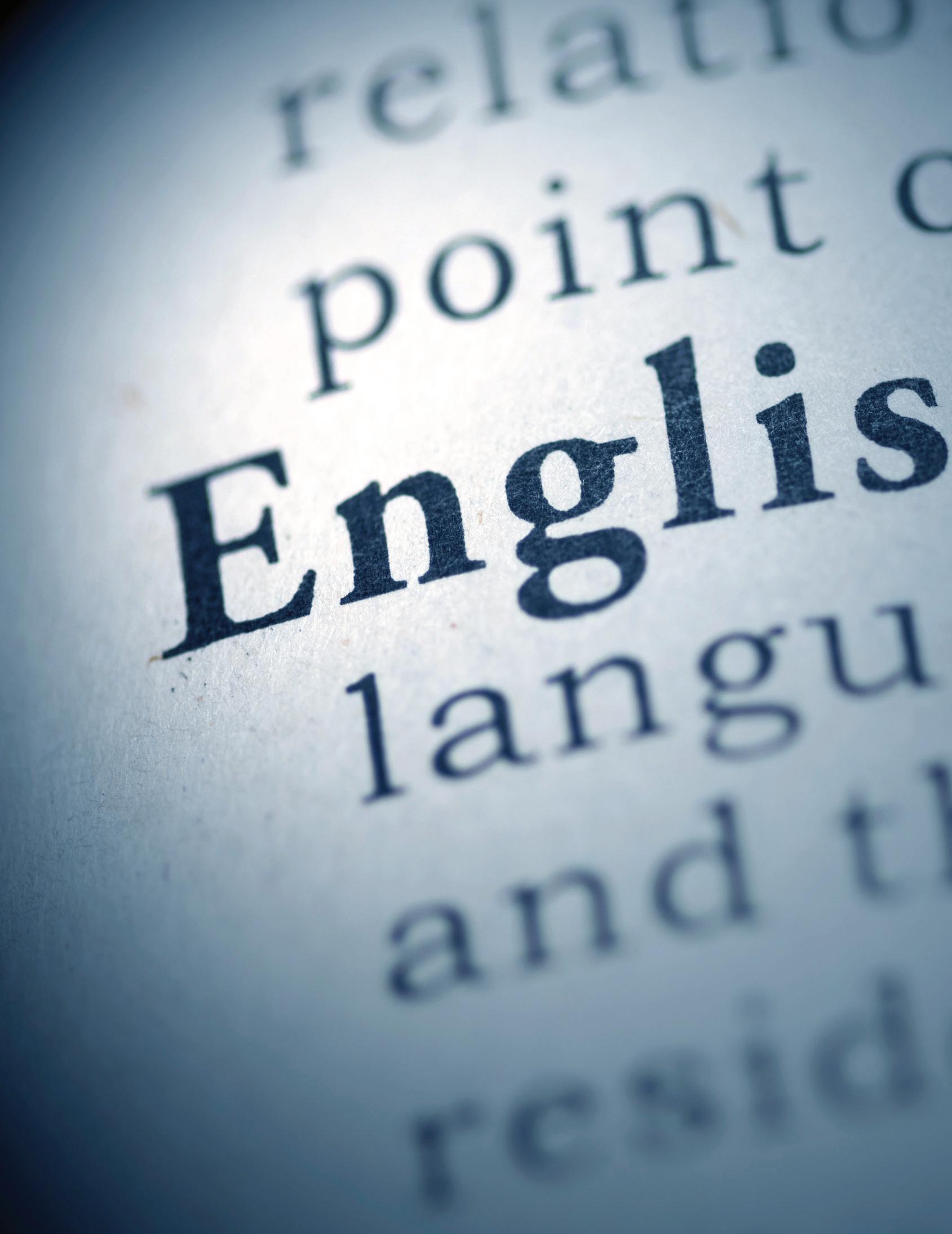
Extended Learning Programme
Subject Extended Learning Programme (ELP)
Department Lead Mr S Phaup ELP Coordinator
Exam Board -
Course Number -
The Sixth Form is a time of transition, and the experiences of pupils change significantly in these two years. They enjoy their position at the top of the school and the responsibility that naturally follows, but they simultaneously have a strong focus on preparing for the lives they will lead when they leave. To give them every chance of success in both of these aspects, all Year 12 pupils follow the Extended Learning Programme, a weekly session which ranges across a number of areas and which covers both the useful and the purely interesting.
The year begins with a focus on study skills and unashamed guidance in how to develop confidence in, for example, note-making and revising. By supporting post-GCSE study in this way, we enable pupils to adapt quickly to the new academic demands and therefore make the most of their sixth form studies. Independent academic curiosity is also encouraged through presentations on the Extended Project Qualification (more information can be found elsewhere in this booklet) and MOOCs. Massive Open Online Courses are offered by universities around the world, and some take just a couple of weeks to complete. They can be an excellent way to indicate enthusiasm for a subject one might be intending to study at university, but they can also simply be an enjoyable way to explore of a topic of personal interest.
All pupils are encouraged to build up evidence of their developing skills and interests. Leadership is an important part of the life of a sixth former, and we use the ELP sessions to encourage involvement, perhaps through CCF or Peer Mentoring. Year 12 pupils are also offered the chance to take a Sports Leadership course, an excellent opportunity to earn a recognised qualification.
Future employers will expect to see strong skills in key areas. To facilitate this, pupils are coached in the art of public speaking and are given opportunities to practise the skill during ELP sessions. CV-writing is taught by employers and HR specialists, and all pupils produce a CV which then forms the basis of a practice interview in which parents and governors act as interviewers. Information about future options is also given to allow pupils to make well-informed plans for the future – we give presentations on going to university both in this country and overseas, and on the growing range of apprenticeship options.
The College offers many opportunities for pupils to hear inspirational speakers. Evening Sixth Form lectures bring those with powerful stories to tell, and we make use of ELP sessions to offer even more variety. Pupils might hear from those established in their careers (we have heard from a recruitment specialist and a racing driver) but also from recent school leavers who can help pupils with more short-term decisions.
Variety of content and style means these sessions offer pupils the chance to get ready for the world.
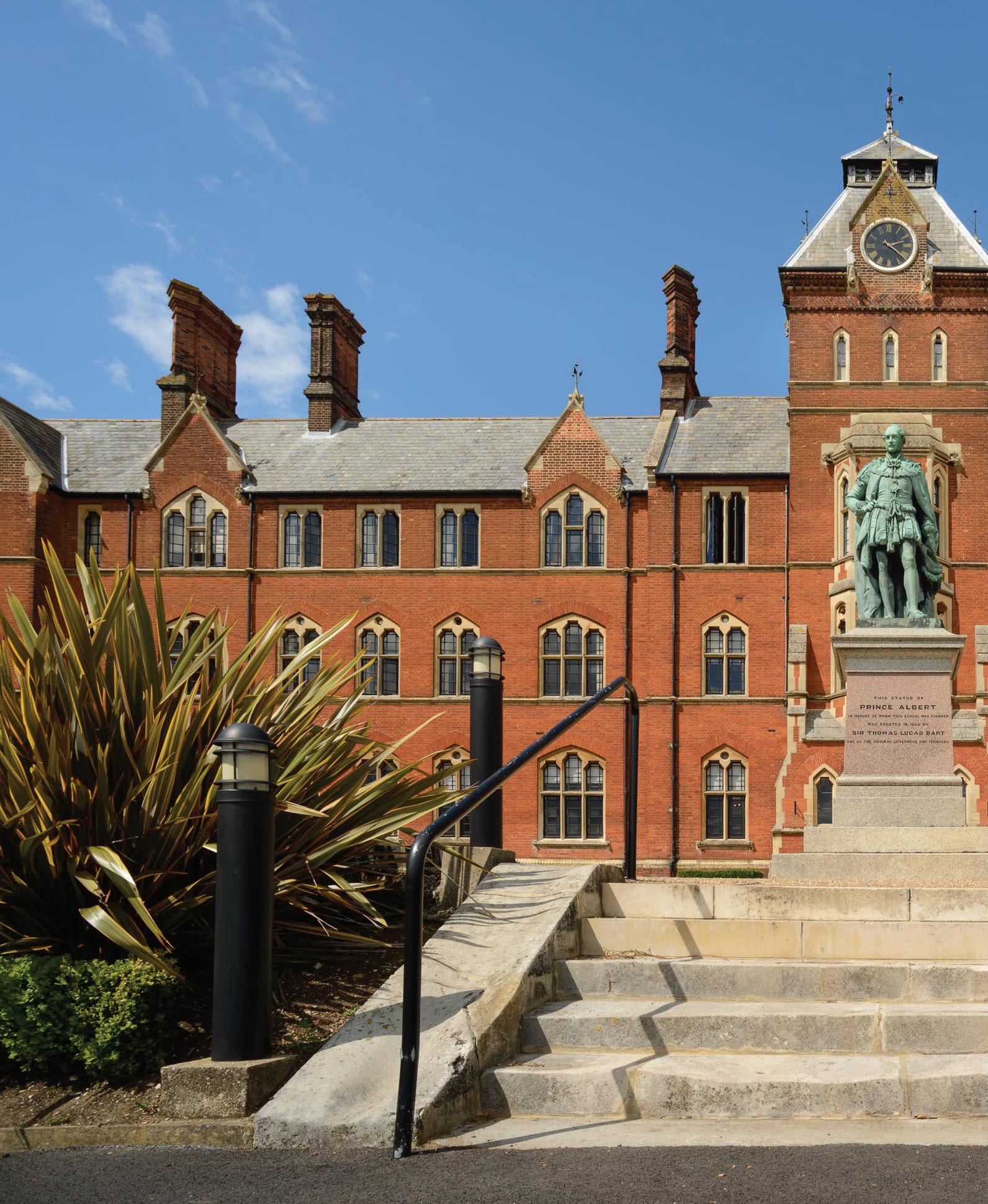

Subject Extended Project Qualification (EPQ)
Department Lead Miss A Janes, BA (Hons) MA EPQ Coordinator
Exam Board AQA
Course Number 7993
The Extended Project Qualification is your chance to apply your analytical and evaluative skills to your own area of interest – in your own way. Designed to enhance and develop the essential skills sought by institutions of higher education and valued by universities all over the world, the EPQ works in harmony with your existing A Level choices to develop your holistic learning skills; everything from conceptualisation and planning, through critical research proficiency to development and realisation of ideas and presentation skills.
The “university-friendly” methodology of the EPQ is such that it is intended to engage learners of all abilities and provide an opportunity to extend their expertise beyond their current programmes of study. At the equivalent of half an A Level, it is also becoming increasingly more commonplace on university offers to pupils.
What is it?
Can I make recognisable musical instruments out of household items? What factors caused the closure of the Millennium Bridge? Make-up Analysis of Beauty Icons. The Value and Uses of 3D Printing in Medicine. Is solely beef farming profitable? Could the encouragement of free markets lead to an increase in personal liberty? How can we encourage a greater female demographic in the air cadets? How has folklore influenced Gothic Literature? Organic Food – is it worth it?
These are just some of the areas of personal curiosity upon which Extended Projects have been based. Are you into motor sport? Do you have a passion for archaeology? Perhaps you’re captivated by the films of Sergei Eisenstein. You may have a desire to quench your curiosity about feudal Japan or maybe you have always been interested in the real world application and value of prime numbers. You might even want to put on your very own rock show. On paper, here in this guide, it’s just speculation; a dream. But you can make it a reality; whatever excites you or sparks your interest could be a viable project for a study and it could help you to get into your first choice university.
What is the process?
You will be assigned a supervisor – a specially trained member of the teaching staff who will guide you through the process, challenging you at every step. You will select, interpret, review, evaluate, analyse, develop, explore…the list is endless! Remember, you are responsible for everything in this learning journey, integrating your own areas of interest with the feedback from your supervisor. So, whilst a very robust structure exists within the College to support you with the process, ultimately the accountability rests with you. You must be highly motivated, organised, willing to learn new skills and attend sessions outside your current timetable, consistently demonstrate the qualities of an independent learner, be able to respond to and engage with formative feedback and, above all, have a passion for your project.
What will I do (and how is it accessed)?
Complete a Production Log: an official AQA document designed to help you quantify and explain your learning journey. Every decision, every obstacle, every success will need to be chronicled and organised in this important document which is assessed – with almost equal weighting – alongside your project.
Produce a written report or artefact based on your chosen area of interest. Written reports must be 5000 words, artefacts must be accompanied by a 1500 word report detailing the process or creation. Artefacts include anything not produced in standard “essay format” including, but not limited to: models, artwork, collage, games, exhibitions, shows/performances, audio recordings and original videos/movies.
Presentation to a non-specialist public audience: you will be required to host an evaluative and reflective oral presentation (including Q&A session) chronicling the development and progression of your entire
EPQ journey. This will take place in a public venue and is another opportunity to gain valuable marks through assessment.
The Taught Element
Running concurrently throughout the process, a series of structured sessions will be held which are designed to enable candidates to develop understanding of the formal requirements of the EPQ including:
• Formal extended writing style/structure
• Time management
• Plagiarism
• Research Methodology/Skills
• Referencing (citations/footnotes/bibliographies/appendices etc.)
• Presentation skills
The Taught Element will be directed through a combination of coordinated in-class sessions, 1:1 and small group meetings and online UK university accredited courses.


Subject Geography
Department Lead Mr E Newman, BSc (Hons) PGCE Head of Geography
Exam Board Eduqas
Course Number A110QS
This course is for anyone who is interested in acquiring and developing a geographical perspective: Pupils who are willing to be challenged to view the world in a different way. It is usual for candidates to have successfully completed a GCSE Geography course, but it is not essential.
What will I learn on this course?
• Understand how to look at the world through a geographical lens;
• Understand the concepts of space and place;
• Understand the processes which form unique physical features;
• Understand the interdependence of societies, economies and environments at various scales;
• Investigate and evaluate sustainable development strategies in a range of contexts;
• Investigate Geographical issues and formulate sustainable solutions;
• Understand how to plan and undertake rigorous investigations;
• Acquire experience of a variety of fieldwork techniques;
• Develop a range of transferable skills from communication and teamwork to literacy and problem solving .
What could I go on to do at the end of the course?
Geography is at the interface between the sciences and the arts and therefore complements a range of subjects. Employers are on the look-out for young people with geographical skills and a geographical perspective. There are over 80 universities which offer geography courses including 20 Russell Group Universities.
Changing Landscapes and Changing Places
Global Systems and Global Governance
Contemporary Themes in Geography
Independent Investigation
Data response and extended response questions on Coastal Landscapes and Changing Places
Data response and extended response questions on Water and Carbon Cycles, Migration and Oceans and 21st Century Challenges
Extended response questions on Tectonics, Ecosystems and Economic Growth and Challenge
One written investigation (4,000 - 5,000 words) on a topic of the candidate’s choosing
Collecting, analysing and evaluating data are significant for understanding in all units. Fieldwork will be undertaken using the Norfolk and Suffolk coastlines, urban areas such as Ipswich and the London Docklands. This will be supported by local fieldwork in the Framlingham area.
Pupils will undertake their own data collection (on a topic of their choosing) for the Independent Investigation and they will have the opportunity to visit Iceland which offers a unique and unforgettable experience.
Secondary Geography Quality Mark
The Geography department is a recipient of the prestigious Secondary Geography Quality Mark from the Geographical Association. Building on this award, the department has also been awarded Centre of Excellence for Fieldwork, the highest award the Geographical Association gives, in recognition of embedding impactful, regular and quality fieldwork experiences across the College.


Subject History
Department
Lead Mr J Moore, BA (Hons) PGCE Head of History
Exam Board
Course Number
While History GCSE prepares a pupil in some ways for A Level, it is certainly not essential. The key desirable qualities are a genuine interest in the subject, combined with an ability to analyse and argue a case, both orally and in writing.
Who is the course suited to?
The A Level course will appeal to pupils who:
• Have an interest in the way that the world has developed.
• Enjoy investigation, debate and framing a well-argued case.
• Want to combine History with subjects such as English and a Modern Foreign Language.
• Want to broaden their Science A Levels to include an Arts subject.
• Want to keep their options open for a wide range of higher education or career choices.
Which skills will be developed?
By the end of your course you will have learned how to evaluate and analyse information, how to weigh up evidence and how to communicate complex ideas effectively. These skills are recognised and valued by employers, universities and colleges.
What does the course lead to?
History provides an excellent foundation for a number of popular careers including journalism, politics, law and business. The quality of the A Level History experience at the College is well illustrated by the significant number of pupils choosing to read the subject at top universities in recent years, including Oxbridge.
History A Level consists of four units, three of which are examined in the summer of Year 13. The NEA unit is the coursework element of the course and is internally assessed.
1. England 1485 – 1558: the Early Tudors (Worth 25% of total marks)
British Period Studies: England 1485 – 1547:
• The government of Henry VII and threats to his rule.
• Henry VII’s foreign policy.
• Henry VIII and Wolsey.
• The reign of Henry VIII after 1529.
Enquiry Topic: Mid Tudor Crises 1547 – 1558
2. England 1485–1558: the Early Tudors (Worth 15% of total marks)
• The establishment and development of the Weimar Republic: 1919 – Jan 1933.
• The establishment of the Nazi Dictatorship and its domestic policies Feb 1933 – 1939.
• The impact of war and defeat on Germany: 1939 – 1949.
• Divided Germany: The Federal Republic and the DDR 1949 – 1963.
3. Russia and its Rulers 1855 – 1964 (Worth 40% of total marks)
• The nature of government.
• The impact of dictatorial regimes on the economy and society of the Russian Empire and the USSR.
• Impact of war and revolution on the development of the Russian Empire and the USSR.
• Russia: Empire, nationalities and satellite states.
4. Non exam assessment: Topic based essay (Worth 20% of total marks)
The History A unit Y100 Topic based essay is an independently researched essay of 3000–4000 words in length. This unit is a non exam assessment. The work will be marked by centres and moderated by OCR.


History of Art
Subject History of Art
Department Lead Ms A De Bassano, MA Teacher i/c History of Art
Exam Board Edexcel
Course Number 9HT0
You need to be interested in Art; although you may not have had any prior experience of the subject. It is not necessary to have studied Art and Design at GCSE but you should have an interest in the history of western culture, incorporating inevitably art and architecture. You should have an enthusiasm for reading and researching ideas around this subject area and therefore you need to be able to write essays effectively. The course will involve visits to galleries and architectural landmarks.
What will I learn on this course?
The course will enable you to learn about the significance of artworks from specific periods of history; from Ancient Greece to the present day. You will develop your ideas and opinions about historical issues and learn to use specialist vocabulary to communicate your knowledge and understanding about architecture, sculpture, painting, photography and design. You will gain an understanding of the principal methods of research and you will learn how artworks have been interpreted in the past and how this has often been affected by the context in which the work was made.
For what kind of pupil is this course suitable?
Pupils who think they will enjoy discovering and investigating their cultural history. It will appeal to pupils who are looking for an academic essay style subject that is approved by Oxbridge and Russell Group universities. It should also appeal to those who want to learn more about contemporary art, architecture and design. It is a subject that often uses ideas from literature, history and philosophy, combining these ideas in an exciting discipline that makes you think. As a well-respected academic subject it can lead on to a wide range of courses and careers.
What could I go on to do at the end of my course?
There are specific History of Art degree courses at many top universities and in addition History of Art is often combined with Languages, History, English Literature and Music, though it can also be combined with Psychology and other Sciences. History of Art is useful if considering studying Archaeology and/or Anthropology. It will also inform any aspiring architectural student with the knowledge they need to understand the history and current trends in this specialism. However, as an academic essay based subject, like many humanities, it is also an excellent subject to lead on to a
variety of different degrees that involve the ability to research and express ideas through written prose. It is, of course, a very good subject to take with Art and Design courses, providing a good basis from which to develop ideas. The analytical skills that you develop and the ability you will gain in researching ideas and how to reach independent judgements are very useful in a variety of careers. History of Art is also useful for working in specific areas such as restoration, conservation and curatorial work as well as opportunities to work with antiques, auction houses, museums and galleries, or in sectors that require visual literary and analytical skills such as advertising, marketing and communications.
Course Structure
The areas of study are: Visual analysis, Themes and Periods in Art History
Paper One
1. Visual Analysis and Themes: 3 Hours = 50%
Pupils will be given examples of painting, sculpture and architecture from Art History. They will need to be able to discuss and analyse this work, which they may not have seen before.
2. From the two themes below, pupils will answer a simple compulsory question in two parts:
• B1 Nature in Art and Architecture
• B2 Identities in Art and Architecture
Paper Two
1. Two periods of Art History: 3 Hours = 50%
• C1 Invention and Illusion: The Renaissance in Italy 1420 - 1520
• C4 Brave New World: Modernism in Europe 1900 - 39
For each period, pupils answer a single compulsory question in four parts.
Critical Texts
Pupils must explore critical texts: essays/critiques with books/articles to evidence and support their arguments. A different critical text must be used for each theme, and these must be different for each of the different papers.


Subject Latin
Department Lead Ms A De Bassano, MA Teacher i/c Latin
Exam Board
OCR
Course Number H043, H443
Latin is a subject that is very much back on the curriculum nowadays. If a generation back there was some speculation that it might disappear amongst a plethora of trendier options, it is now re-establishing itself in a variety of forms in a variety of schools, and Framlingham is keen to ensure that pupils with the right aptitude have the opportunity on an extra-curricular course to make the most of their ability in this field.
A knowledge of our classical heritage is vital for understanding the nature of modern Europe, many of the languages of modern Europe largely derive from Latin, and so for scientists, linguists and those following courses in any of the humanities, some Latin is a useful tool, an adornment to their studies, and an indication to good universities that here is a student with something extra.
Latin A Level (OCR) has evolved as have other examination courses, but mutatis mutandis, the basic elements remain much the same. The course content as set out in the syllabus is divided into Language and Literature, each carrying 50% of the total final marks.
The Language element builds on the basic work done for GCSE and involves a high level of competence with a range of vocabulary and linguistic structures developed through reading and studying prose and verse extracts. Pupils will therefore encounter a range of authors from the Classical period so as to be prepared for an Unseen Translation paper (33%) and a Comprehension or Prose Composition paper (17%). In the process they will pick up an outline of Roman history and civilisation.
For the Literature element, study of specific texts in prose (25%) and verse (25%) is undertaken. Currently the prose text is Cicero’s Pro Cluentio, most of which is studied in Latin, though parts are just to be read in English. This shows the leading orator of his day defending his client by attacking all those around him, and the power of his argument is both inspiring and astonishing. For the verse paper, we study a selection of Catullus’ poems in which he moves quickly from being joyful in love to feeling crushed by rejection and finally vicious in condemning the behaviour of his lover.
The Sixth Form groups for Latin are usually small, and the lessons are fitted in the timetable around the blocks for other subjects chosen by pupils in a particular year. Latin pupils have fewer lessons, but the small groups mean that tuition is almost individual. The right motivation is necessary for pupils to be able to work on their own, but those who work hard can get their full reward.

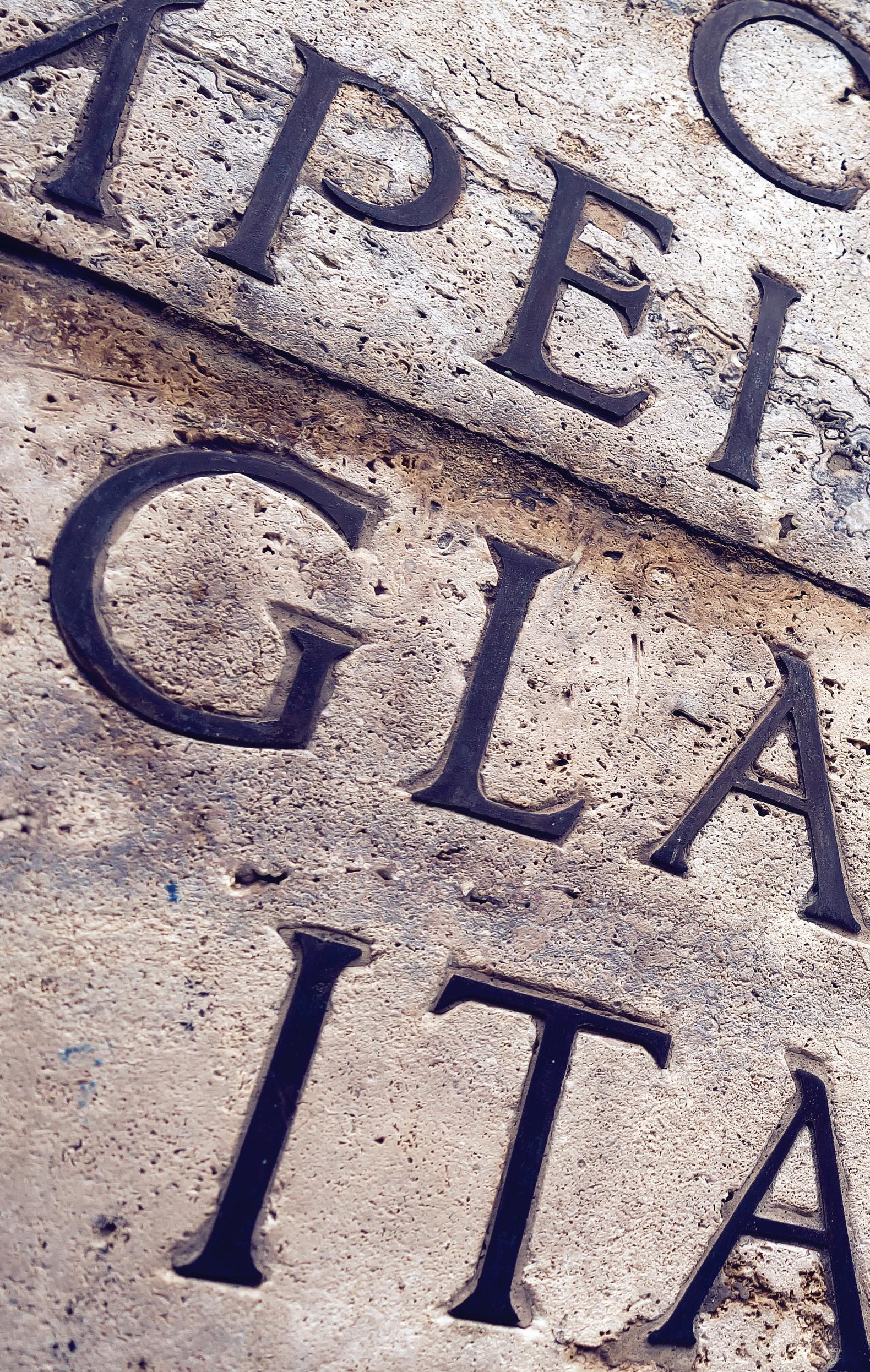
Subject Mathematics
Department Lead Mrs H Stannard, MSc BSc Head of Mathematics
Exam Board Edexcel
Course Number
9MA0 (Mathematics), 9FM0 (Further Mathematics)
The A Level Mathematics course enhances and develops your existing Mathematical skills and delves deeper into your understanding of techniques and their applications. It is stimulating and challenging, and will develop key employability skills such as problem-solving, logical reasoning, communication and resilience.
What entry qualifications do I require for this course?
A solid foundation in the more challenging aspects of GCSE/iGCSE Mathematics is necessary, as the course builds on this understanding. Strong knowledge of number and algebra is essential and, based on past experience, Grade 7 at GCSE is the desirable minimum requirement for starting the A Level course. Aspiring candidates should seek advice from their present Mathematics teacher as to their suitability for this next, more demanding level.
What will I learn on this course?
Mathematics at A Level is a challenging and interesting course which provides a richer and more in depth understanding of what you have studied previously. It utilises skills of logical and rational thought processes when building on work you will have met before, and when exploring new ideas and concepts. Whilst it is worth studying in its own right, Mathematics is widely appreciated as a versatile qualification that is well- respected by employers, facilitating entry into many Higher Education courses.
Mathematics at A Level is divided into three branches:
Pure Mathematics
Pure Mathematics extends your knowledge of topics such as Algebra, Geometry, Proof, and Trigonometry, as well as starting to explore new concepts such as Calculus. Pure Mathematics underpins the study of all other areas of mathematics and describes the fundamental building blocks of the subject.
Statistics
In Statistics you will learn how to collect, analyse and summarise numerical data to make conclusions or predictions about future events. You will test the validity of statements by using hypothesis testing, investigate probability and risk and tackle real-life problems with statistical models. You will become familiar with a large data set, using programs such as excel and geogebra to investigate the data. Many subjects make use of statistical information and techniques and is important for careers in areas such as insurance, medicine, engineering and science.
Mechanics
Mechanics involves modelling and analysing the physical world around us. You will explore the effects of forces and motion, learning how to describe and interpret these situations mathematically. Mechanics is useful in making sense of the real world and is great for pupils studying Physics and Engineering..
While studying Mathematics you will be expected to:
• Use mathematical skills and knowledge to solve problems of varying complexity.
• Simplify real life situations so that you can use mathematics to show what is happening and what might happen in different circumstances.
• Use mathematics to solve problems that are given to you in a real-life context.
• Develop and extend your ability to structure mathematical arguments logically, including formal proofs.
• Use calculator software and other resources effectively and fluently, where appropriate.
It is essential the pupils purchase an appropriate calculator that has the capabilities required to access the course. It would be advantageous, but not essential, for pupils to own a calculator that has graph drawing capabilities. We would recommend buying either the Casio FX-991 CW or the more advanced Casio FX-CG50 graphical version, both of which we have on sale at the Senior School reception for a discounted price.
What could I go on to do at the end of my course?
A Level Mathematics is very valuable in supporting many courses at A Level and degree level, especially in the Sciences, Geography, Psychology, Sociology, and Medical courses. It is a much sought-after qualification for entry to a wide variety of full-time courses in Higher Education. A Level Mathematics is essential for studying Mathematics, Engineering or Physics at University. A Level Further Mathematics may also be advisable for entry to these courses at some universities. These courses, as well as the qualification itself, can assist you in many different career paths – studies show that pupils who take A Level Mathematics earn on average more in their lifetimes.

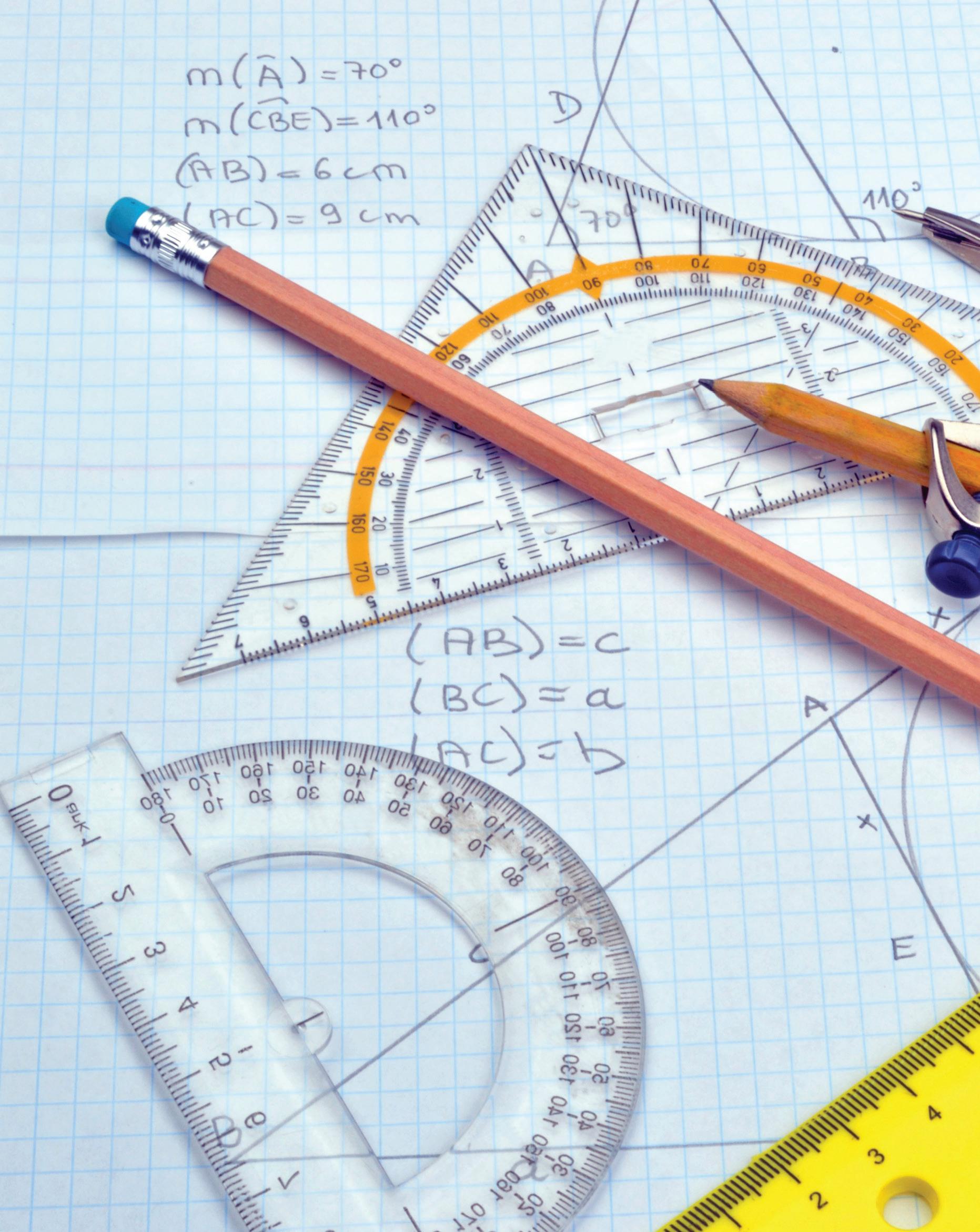
How many papers will I have to take?
Pure
Pure 2
Statistics and Mechanics
Further Mathematics A Level
2 hours Calculators allowed
2 hours Calculators allowed
2 hours Calculators allowed
A Level Further Mathematics is fun and rewarding, broadening your mathematical skills and promoting deeper mathematical thinking. At Framlingham College, we teach A Level Mathematics in parallel with A Level Further Mathematics, meaning you will have separate A Level Mathematics and A Level Further Mathematics lessons throughout Year 12 and Year 13. The A Level Further Mathematics course is suited only to the very best Mathematicians, opting for Further Mathematics in addition to their A Level Mathematics course (resulting in two A Level qualifications overall). Further Mathematics is divided into four parts, consisting of two compulsory Pure Mathematics units, and two optional units. The optional units may be chosen from Extra Pure Mathematics, Mechanics, Statistics or Decision Mathematics options.
Core Pure Mathematics (compulsory)
Here you extend your knowledge of the A Level course, whilst also exploring other topics such as complex numbers, matrices and vectors.
Statistics (Option)
In Statistics, the work covered on the A Level course is extended to introduce further probability models and also to testing whether a particular model may be used to represent a real-life situation (Chi squared testing).
Mechanics (Option)
The A Level Mechanics unit is extended to introduce more complicated work-energy problems and collisions. You will also look at elastic strings and springs.
Decision Mathematics (Option)
If you study Decision Mathematics, you will learn how to solve problems involving networks. You will study a range of methods, or algorithms, which enable such problems to be tackled. This branch of mathematics is of recent origin and does not require pure mathematical skills.
For students studying A Level Further Maths, we strongly recommend they purchase the Casio FX-CG50 graphical calculator which we have on sale at the Senior School reception for a discounted price.
How many papers will I have to take?
Core Pure 1
Core Pure 2
Option 1
Option 2
90 minutes Calculators allowed
90 minutes Calculators allowed
90 minutes Calculators allowed
90 minutes Calculators allowed
What could I go on to do at the end of my course?
A Level Further Mathematics is particularly useful for going on to study mathematically demanding degree courses such as Mathematics, Physics, Engineering or Computer Science.


Subject Modern Languages
Department Lead
Exam Board
Mr J Sedeño, BA (Hons) PGCE Director of Languages
Edexcel
Course Number 9FR0A (French), 9SP0A (Spanish)
If you are interested in people, travel, learning about other countries and ways of life, then the Modern Languages A Level could be suitable for you. You will need patience and persistence to learn vocabulary and grammar. You will have to devote time to reading, researching and listening independently. You need a genuine curiosity about your language and real desire to be able to speak and understand it.
Languages Today
The globalised nature of today’s employment market means that almost all businesses and careers need some level of linguistic competence in languages other than English. With a Modern Languages degree, or a combination of languages and other subjects, you could have a career in a wide range of industries. Companies are keen to employ British graduates who speak another language and those who do are at a distinct advantage over those who speak only English.
What does the A Level course involve?
An A Level in Modern Languages will build on the knowledge, skills and understanding acquired at GCSE. It will significantly enhance your practical linguistic skills, develop a capacity for critical and analytical thinking and a broad knowledge and understanding of language, culture and society. You will acquire skills which will enable you to learn other languages in the future. It will give you a deeper understanding of other countries and the confidence to interact with people from backgrounds other than your own. You will develop independence, resourcefulness, creativity and critical thinking.
How will I study?
• You will study in small classes using authentic materials, text books, internet-based resources, literature and films.
• You will have a weekly speaking tutorial with a native speaker assistant teacher either on a one-to-one basis or in a pair
• You will have the opportunity to participate in an exchange to France and Spain.
• By the end of two years of A Level study, you can expect to be confident speaking on a wide range of topics and be able to understand written and spoken language as it is used on a day-to-day basis in the country.
What does the A Level exam involve?
• Paper 1 Listening and reading comprehension. Translation into English
• Paper 2 Written response on two literary texts or one literary text and a film. Translation into French, Spanish.
• Paper 3 Speaking:
• Task 1 - discussion of an A Level theme,
• Task 2 - presentation and discussion of independent research on a topic of your choice.
What could I study after A Level Modern Languages?
There are many options for the study of languages at university. You could take a Modern Languages degree, either continuing with your A Level language(s) or taking others that you have not studied before “ab initio”. Languages combine with almost any other subject at degree level. To list just a few examples: Law, English, Business Studies, Politics, International Relations, Engineering, History, Journalism. Most universities offer a year in the country of your language either working or studying. You would have a unique opportunity to gain experience and broaden your horizons before beginning a career.

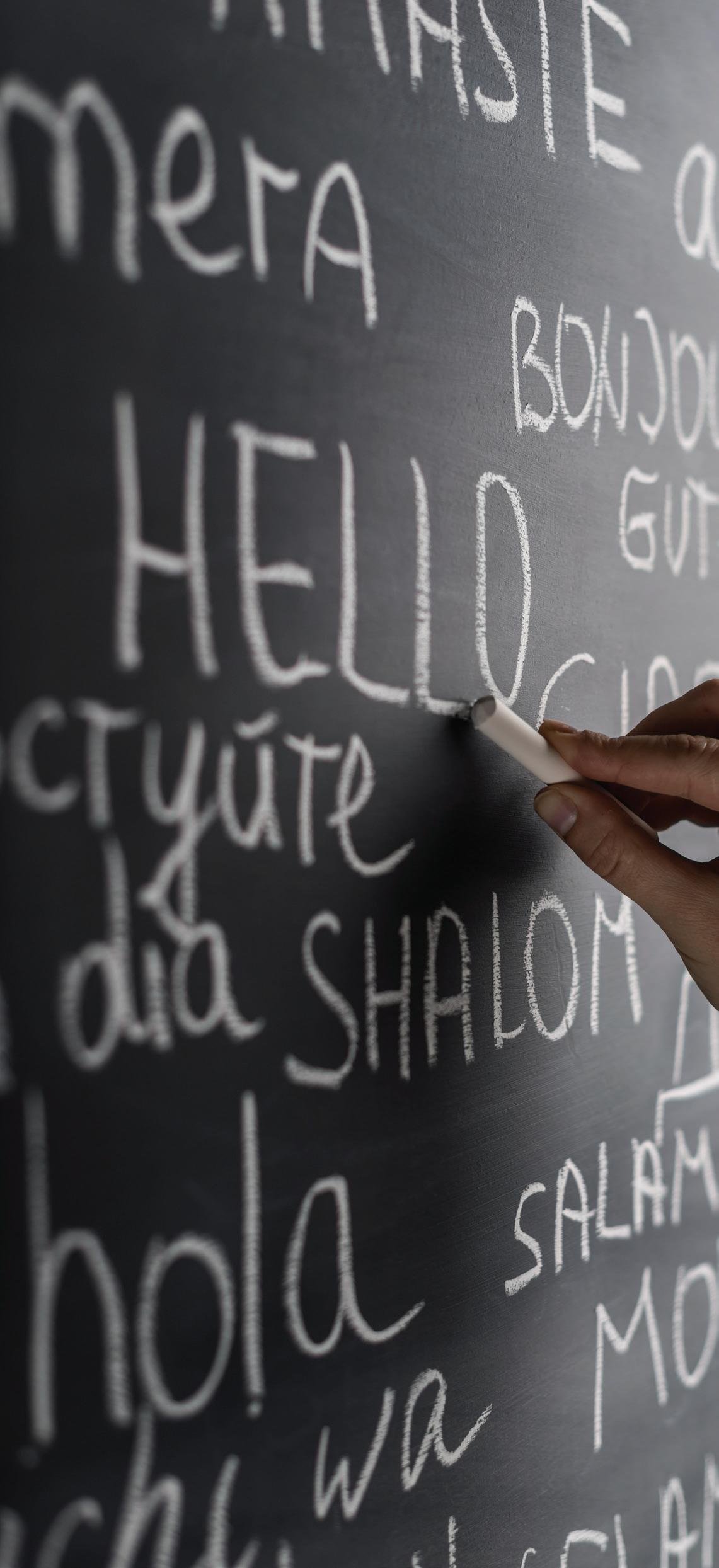
Subject Music
Department Lead Mrs L Bloore, DIPTCL LTCL PGCE Director of Music
Exam Board
Course Number
Edexcel (A Level Music), Pearson (BTEC)
9MU0 (Edexcel)
Music in the Sixth Form is varied and enriching. Music pupils are the backbone of the department, and have the opportunity to demonstrate both leadership and excellence in whichever areas of music they are interested in. All Music pupils are heavily involved in co-curricular Music, and as such are outstanding role models for their peers. .
1.
A Level Music
This two year course enables pupils to develop the skills and knowledge both academically and practically. The course is split into three different sections:
1. Performing: Pupils must submit a recording of a recital of at least 8 minutes of performing time in total. The expected standard of performance is Grade 7 or its equivalent.
2. Composing: Pupils compose at least two pieces lasting no less than 6 minutes in total. One is to be a free-choice (brief based) or free composition. The other must be in response to one of four briefs assessing technique.
3. Appraising: Through the study of set works, pupils develop their analysis skills, and are encouraged to make connections between different styles, genres and periods of music. Pupils will sit a two-hour examination based on their study of set works. Aural skills are also assessed through the listening section of this examination.
Pupils develop their Listening and Appraising skills
Unit 3 is examined through a Listening and Appraising examination at the end of Year 13. Throughout the course pupils develop their listening and appraising skills through the study of set works taken from a variety of styles and genres. The set works are grouped into six areas of study:
The Areas of Study are:
Area of study 1: Vocal Music
Area of study 3: Music for Film
Area of study 5: Fusions
Area of study 2: Instrumental Music
Area of study 4: Popular Music and Jazz
Area of study 6: New Directions
Pupils learn to reflect on, analyse and evaluate music in aural and/or written form. They use specific music vocabulary and learn the content of musical elements and context through the study of these set works.
This course suits pupils who have achieved Grade 5 Theory, and are at least Grade 6 in one instrument. It is an ideal course for those who relish academic challenge, and are interested in a formal teaching and learning style.
2. BTEC Music Performing
We will be following the Pearson BTEC Level 3 National Extended Certificate, which is the equivalent of one A Level qualification.
The new BTEC Level 3 Extended Certificate offers pupils a modern, work-related qualification, the purpose of which is to support defined progression routes into higher education or employment. BTEC Extended Certificate also aims to develop independent research and study skills essential for success at university. This is a vocational course that offers pupils the opportunity to apply their skills and knowledge in a wide range of musical scenarios, in order to meet industry standards.
The course consists of five units, of which three are mandatory and one is optional. Pupils will apply their learning through practical assessments, in the form of internally assessed assignments and externally assessed tasks. The course outline is as follows:


Mandatory Units:
Practical Music and Harmony
Professional Practice in the Music Industry
Ensemble Music Performance
Optional Units:
Composing Music
Music Performance Session Styles
Solo Performance
Improvising Music
The course suits pupils with a passion for all styles of music, who want to learn through practical application. It is also relevant to those who wish to work in the music or entertainment industry, whether as a performer, technician or in a more administrative role.
3. BTEC Sound Engineering
We will be following the Pearson BTEC Level 3 National Extended Certificate, which is the equivalent of one A Level qualification.
The new BTEC Level 3 National Extended Certificate offers pupils a modern, work-related qualification, the purpose of which is to support defined progression routes into higher education or employment. BTEC Extended Certificate also aims to develop independent research and study skills essential for success at university. This is a vocational course that offers pupils the opportunity to apply their skills and knowledge in a wide range of musical scenarios, in order to meet industry standards.
The course consists of five units, of which two are mandatory and three are optional. Pupils will apply their learning through practical assessments, in the form of internally assessed assignments and externally assessed tasks.
The course outline is as follows:
Mandatory Units:
Studio Recording Techniques
DAW Production
Optional Units:
Live Sound
Mixing and Mastering Techniques
Studio Design and Acoustics
Working and Developing as a Production Team
The course suits pupils with a passion for all styles of music, who want to learn through practical application. It is also relevant to those who wish to work in the music or entertainment industry, whether as a performer, technician or in a more administrative role.


Subject Philosophy (Incorporating Religious Studies)
Department Lead Mr T Salisbury, BA (Hons) PGCE Head of Philosophy, Religious Studies and Politics
Exam Board AQA
Course Number 7172
This accessible but challenging course combines four respected and related philosophical disciplines: Epistemology, Moral Philosophy, The Metaphysics of God (Philosophy of Religion) and The Metaphysics of Mind.
Philosophy, The Metaphysics of God (Philosophy of Religion) and The Metaphysics of Mind. Building on the critical ethical study undertaken in GCSE RS, and covering much of the previously familiar A Level course known as ‘Religious Studies’, this course investigates our capacity to know the world, to make consistent moral decisions, to argue for belief in God and to understand human consciousness.
Pupils will study all four areas: epistemology, moral philosophy, metaphysics of God and metaphysics of mind. The qualification is linear which means that all pupils will sit two examinations at the end of the course.
Year 12
50% of A Level
Section A: Metaphysics of God Section B: Moral philosophy
Metaphysics of God – Is God’s existence provable?
Here are some of the questions this aspect of the course addresses.
• How is the nature of God to be understood?
• Are any philosophical arguments for God’s existence effective?
• Isn’t God disproved by a world of suffering?
• Can one really speak meaningfully anyway about an intangible God?
Moral Philosophy – How do we decide morally?
Here are some of the questions this aspect of the course addresses:
• How do we decide consistently what it is morally right to do?
• Is morality determined by pleasing the greatest number of people?
• Are actions and intentions morally right or wrong in principle regardless of outcomes?
Year 13
50% of A Level
Section C: Epistemology Section D: Metaphysics of Mind
Epistemology – What can we know?
Here are some of the questions this aspect of the course addresses:
• What are the immediate objects of perception?
• What is the difference between knowing ‘of’, knowing ‘how’ and knowing ‘that’?
• Where do ideas/concepts and knowledge come from?
• Can we know things outside of experience? Can we… should we… trust our senses?
Metaphysics of Mind – Are mind and body separate?
Here are some of the questions this aspect of the course addresses.
• What is the relationship between the mental and the physical?
• Could a person exist without a body?
• Is there a ‘what it is like’ to be human that goes beyond mere information?
• Are humans just a collection of physical behaviours and the mind is an illusion?


Why should you study Philosophy?
One direct benefit is greater comprehension. Firstly, comprehension of the profound questions that have propelled human development forward in search of understanding. Secondly, comprehension of the key thinkers and experimenters who have extended our grasp of human perception, human belief, human morals and human ontology.
A more indirect benefit of studying this subject, which incorporates the knotty question of whether we have any relationship with a divine power, is the acquisition of the following transferable skills: the development of competent research strategies; the ability to construct reasoned arguments; the confidence to articulate one’s arguments forcibly and engage others in debate; the capacity to analyse received wisdom and to pare down cluttered and distracting claims to their essentials.
How can you apply philosophical aptitude in the real world?
Not only does this course introduce you to four central philosophical specialisms, informing you about how you might pursue philosophy at university, it opens up other key careers too.
Philosophy in its various forms is seen as an academic grounding useful for Law, Local Government and policy making, Politics, Medical Ethics, Journalism, Teaching, Corporate Leadership and Creative Writing. A thorough grounding in this course and its analytical problem solving furthermore, is likely to equip you to identify other career paths philosophy ably illuminates.


Subject Physical Education
Department Lead
Mr M Page, BSc MSc Head of Physical Education and Sports Science
Exam Board AQA (A Level Physical Edication)
Course Number 7852 (AQA)
Studying Physical Education A Level will give you a fantastic insight into the amazing world of sport performance.
Pre-requisite knowledge and attainment
GCSE Physical Education is not a pre-requisite for following this subject at A Level, although it does provide useful background information. Generally, candidates should be interested in sport and keen to understand how the human body is able to respond to the demands of the sports environment and the role that sport plays in society. Your practical performance in one sport contributes to your overall grade, so although you do not need to be a top-class performer you must be prepared to take advantage of all the opportunities for improving personal skills that exist outside the curriculum.
What will I learn on this course?
Studying A Level Physical Education will give you a fantastic insight into the world of sport performance. Not only will you have the chance to perform or coach a sport through to the non-exam assessment component, you will also develop a much deeper understanding of ‘how and why’ physical activity and sport influence and are influenced by physiological, psychological and sociological factors. For example you will learn why some people outperform others, how technically better performers can lose the psychological battle, the influence technology is having on sport and delve into ethical considerations behind the use of performance-enhancing drugs. The combination of physical performance and academic challenge provides an exciting opportunity for pupils. You can perform and then, through academic study, improve your performance or coaching through application of theory.
What kind of pupil is this course suitable for?
You must understand that it is an academic subject which covers a range of topics. The focus isn’t just practical PE! This is a fantastic course that goes into great detail about a wide range of concepts. Are you thinking of becoming a physiotherapist; managing a leisure centre or gym; wanting to become a personal trainer or influence the diet and exercise habits of the nation as a nutritionist or adviser; fascinated by the human body or studying
other sciences; or do you just want to understand the why behind health and sports performance? If so, then A Level PE is for you.
What could I go on to do at the end of my course?
A Level Physical Education is an excellent base for a university degree in sports science, sports management, sports psychology, healthcare, or exercise and health. It can also complement further study in biology, human biology, physics, psychology, nutrition, sociology and more. A Level Physical Education can open up a range of career opportunities including: sports development, strength and conditioning, sports coaching, physiotherapy, sports science support, or becoming one of the next generation of PE teachers. The transferable skills you learn through your study of Physical Education, such as decision-making and independent thinking are also useful in any career path you choose to take.
The A Level Physical Education course
The AQA A Level Physical Education course that we follow comprises the following three components:
1. Factors affecting participation in physical activity and sport (35% weighting – 2 hour examination)
This component focuses on developing the learner’s knowledge of the science behind physical activity. It is made up of:
• Section A: Applied anatomy and physiology (including developing understanding of our cardiovascular, respiratory, muscular and energy systems).
• Section B: Skill acquisition (including how we develop and learn new skills and enhance skill development as a coach).
• Section C: Sport and society (including how sport has impacted on society through to the modern day and the barriers affecting the exercise habits of certain groups).
2. Factors affecting optimal performance in physical activity and sport (35% weighting – 2 hour examination)
Through the study of this component, pupils will gain a deeper understanding of how to optimise performance in sport through manipulation of physical, psychological and sociological factors. It is divided into:
• Section A: Exercise physiology and biomechanics (including how to optimise diet and training, manage injury and optimise force production)
• Section B: Sport psychology (including team and individual psychological factors that can improve and inhibit performance, e.g. personality, aggression, leadership, stress, anxiety and more).
• Section C: Sport and society and technology in sport (including how technology is used to analyse performance, the use of performanceenhancing drugs, violence in sport, how elite athletes are developed and more).


3. Performance in Physical Education (30% weighting – non-examination element)
This component contains the practical element of the A Level Physical Education course, divided into two sections:
• Performance Assessment (Practical Performance) – pupils are assessed as a performer or coach in the full sided version of one activity listed below.
• Performance Analysis Assessment (analysis and evaluation of performance) – pupils are required to observe and analyse a performance in their chosen sport and apply aspects of their theory courses to the performance. This can be a written or verbal format.
Association Football Cycling (Track or Road) Handball Rugby League Tennis
Athletics Dance Hockey (Field or Ice) Rugby Union Trampolining
Badminton Diving Hurling Sailing Triathlon
Basketball Equestrian Kayaking Sculling Volleyball
Blind Cricket Figure Skating Lacrosse Skiing Waterpolo
Boccia Futsal Netball Snowboarding Windsurfing
Boxing Gaelic Football Polybat Squash Wheelchair Bsk’Ball
Camogie Goal Ball Powerchair Football Swimming Wheelchair Rugby
Canoeing Golf Rock Climbing Table Cricket
Cricket Gymnastics Rowing Table Tennis


Subject Physics
Department Lead Mr S Lebbon, BSc (Hons) MCCT MRSB PGCE Head of Science
Exam Board OCR
Course Number H556A
‘Physics is everything’. So what do you need to know to be able to find out about everything? A background in GCSE/ IGCSE Science is crucial A Grade 7 or above at GCSE Physics or Combined Science is highly recommended, as well as a Grade 7 in GCSE Mathematics.
The course requires a background in the ability to use algebra and trigonometric techniques in problem solving and the analysis of experimental results. It is highly preferable for a candidate to be studying Mathematics at A Level, too. Although this is not a necessity, it would be more of a challenge to succeed at Physics.
Who is the course suited to?
• Physics suits someone who is fascinated by how things work, by fundamental questions about the way the world is and by the exactness of science which alone can try to uncover truths about the world. Studying the subject, you will feel that what you learn builds upon what you did at GCSE but in a more mathematical way. You must practise the use of mathematics in the subject so that it becomes natural to you so you can begin to concentrate on the ideas themselves as they become more complex..
• Physics is the science that attempts to describe how nature works with the help of the language of mathematics. It is often considered the most fundamental of all the natural sciences and its theories attempt to describe the behaviour of the smallest building blocks of matter, light, the Universe and everything in between!
• Physics is often studied alongside Mathematics, Biology and Chemistry, but it can give an analytical edge to any portfolio of subjects. It suits someone who enjoys problem-solving, is interested in explaining how the material world works and would like a practical subject.
• If you pursue the subject at university you will find that Physics graduates are in great demand in the widest range of careers: pilots, engineers, accountants, management/computer analysts, in the City – anywhere that profound analytical skills are required.
What will be learnt and which skills will be developed?
• From the birth and death of stars to the fleeting interactions of tiny particles, Physics studies how our world works. To do this it uses ideas ranging from Force and Energy, easily understood and ‘everyday’, to Strangeness and Charm, rather more abstract and fanciful concepts! It is a fascinating subject, driven by the desire to find out how and why matter behaves the way it does.
• Physics is not only interesting, it is also highly marketable. With an A Level in Physics you have proved that you possess a wide range of key skills, exactly what employers and universities are looking for today. Indeed there can be few subjects at A Level that cover such a wide range of transferable skills – from the use of IT in data-logging experiments to the numerical skills that are the bedrock of the subject and the skills in written expression needed to produce clear, concise explanations.
• A Physics pupil usually possesses excellent analytical, quantitative and problem-solving skills. They have the ability to take lots of information, in a variety of forms, and interpret it as well as use the data to form and justify conclusions. When faced with a problem they are taught how to tackle them systematically. This involves not being daunted when the solution is not immediately obvious, but instead to persevere and trust their toolbox of skills. These are valuable skills that can be applied in a range of careers. More importantly, an increasing number of employers are starting to realize this fact and are looking to hire Physics graduates.
• Throughout the course, pupils are invited along to several lectures at Cambridge University on a diverse range of topics: we have heard about the ‘Physics of Juggling’, ‘Relativity: The Physics of Space-Time’ and ‘Can Science Make a Cyclist Faster?’
• As part of an Ogden Partnership, our pupils can experience a diverse range of bespoke events such as stargazing to help with the Cosmology content.
• During the two years Pupils visit the Large Hadron Collider at CERN in Geneva as part of the Particle Physics topic.


Year 12
Module 1 – Development of Practical Skills in Physics
1.1 Practical skills assessed in a written examination, 1.2 Practical skills assessed in the practical endorsement.
Module 2 – Foundations of Physics
2.1 Physical quantities and units, 2.2 Making measurements and analysing data, 2.3 Nature of quantities.
Module 3 – Forces and Motion
3.1 Motion, 3.2 Forces in action, 3.3 Work, energy and power, 3.4 Materials, 3.5 Newton’s laws of motion and momentum.
Module 4 – Electrons, Waves and Photons
4.1 Charge and current, 4.2 Energy, power and resistance 4.3 Electrical circuits, 4.4 Waves, 4.5 Quantum physics.
Year 13
Module 5 – Newtonian World and Astrophysics
5.1 Thermal physics, 5.2 Circular motion, 5.3 Oscillations, 5.4 Gravitational fields, 5.5 Astrophysics and cosmology.
Module 6 – Particles and Medical Physics
6.1 Capacitors, 6.2 Electric fields, 6.3 Electromagnetism, 6.4 Nuclear and particle physics, 6.5 Medical imaging.
Course Assessment
Paper 1 “Modelling Physics”, 2 hours 15 minutes, 37%.
• 15 multiple choice questions
• 85 marks of structured questions
• Covers modules 1, 2, 3, and 5, and practical skills
Paper 2 “Exploring Physics”, 2 hours 15 minutes, 37%.
• 15 multiple choice questions
• 85 marks of structured questions
• Covers modules 1, 2, 4, and 6, and practical skills
Paper 3 “Unified Physics”, 1 hour 30 minutes, 26%.
70 marks of structured questions and extended response
Practical endorsement: Pass/fail, awarded separately to the A Level grade: Over the two year course pupils will complete a minimum of 12 assessed practicals to develop their skills and contribute to their understanding of core concepts.


Subject Politics
Department Lead
Mr T Salisbury, BA (Hons) PGCE Head of Philosophy, Religious Studies and Politics
Exam Board Edexcel
Course Number 9PL0A
While the A Level course does not demand any prior knowledge and is structured to provide pupils with the foundational elements of Politics, a familiarity with the political system and the terminology would be preferable and would only serve to ease the transition into a new subject such as this. Interest and regular engagement with the constantly evolving landscape of politics, both in the UK and abroad would also be desirable, given that ‘a week is a long time in politics’.
What will I learn on this course?
By studying A Level Politics you will:
• Be able to understand and use political terminology;
• Understand the British and American political systems, and their similarities and differences;
• Analyse and evaluate different political ideologies and understand their history and future;
• Develop research, written communication, analysis and debate skills;
• Confidently propose and support ideas in a persuasive manner;
• Apply historical issues to present day contexts and extrapolate to future scenarios.
What kind of pupils is this course suitable for?
An ideal pupil would be one who keeps themselves up to date with current political issues and changes, i.e. someone who regularly consumes news from various sources. No previous knowledge is required, but a clear interest in the topic and a familiarity with terminology and political systems would provide a substantial advantage. They would be open-minded and willing to listen to and digest the opinions of others, whilst remaining critical. They would also acknowledge the importance of comparative analysis and providing justified arguments for the benefits and pitfalls of opposing systems and ideas. What avenues will this course open for me?
Studying A Level Politics is ideal if you’re considering studying Politics, Philosophy, Law, International Relations, Sociology, Advertising or Journalism at university and is highly regarded by employers in industries including Politics, International Organisations, Media, Government and the Civil Service.
Course Content
Pupils studying A Level Politics will encounter the following topic areas:
1. The government and politics of the UK including areas such as – the constitution, democracy, parliament, electoral systems, the judiciary.
2. The government and politics of the USA (Comparative Politics)
including such areas as – the constitution, the executive and judiciary, electoral process, political parties, civil rights.
3. Core political ideas (Pupils study all three)
• Conservatism
• Liberalism
• Socialism
4. Optional political ideas (pupils will explore one of these)
• Nationalism
• Feminism
• Multiculturalism
• Anarchism
• Ecologism
How will I be assessed?
Three written papers, each 2 hours, assessing the three topic areas detailed above. Each paper is weighted equally.
Pupils are assessed on three objectives:
• AO1: Demonstrate knowledge and understanding of political institutions, processes, concepts, theories and issues;
• AO2: Analyse aspects of politics and political information, including in relation to parallels, connections, similarities and differences;
• AO3: Evaluate aspects of politics and political information, including to construct arguments, make substantiated judgements and draw conclusions.

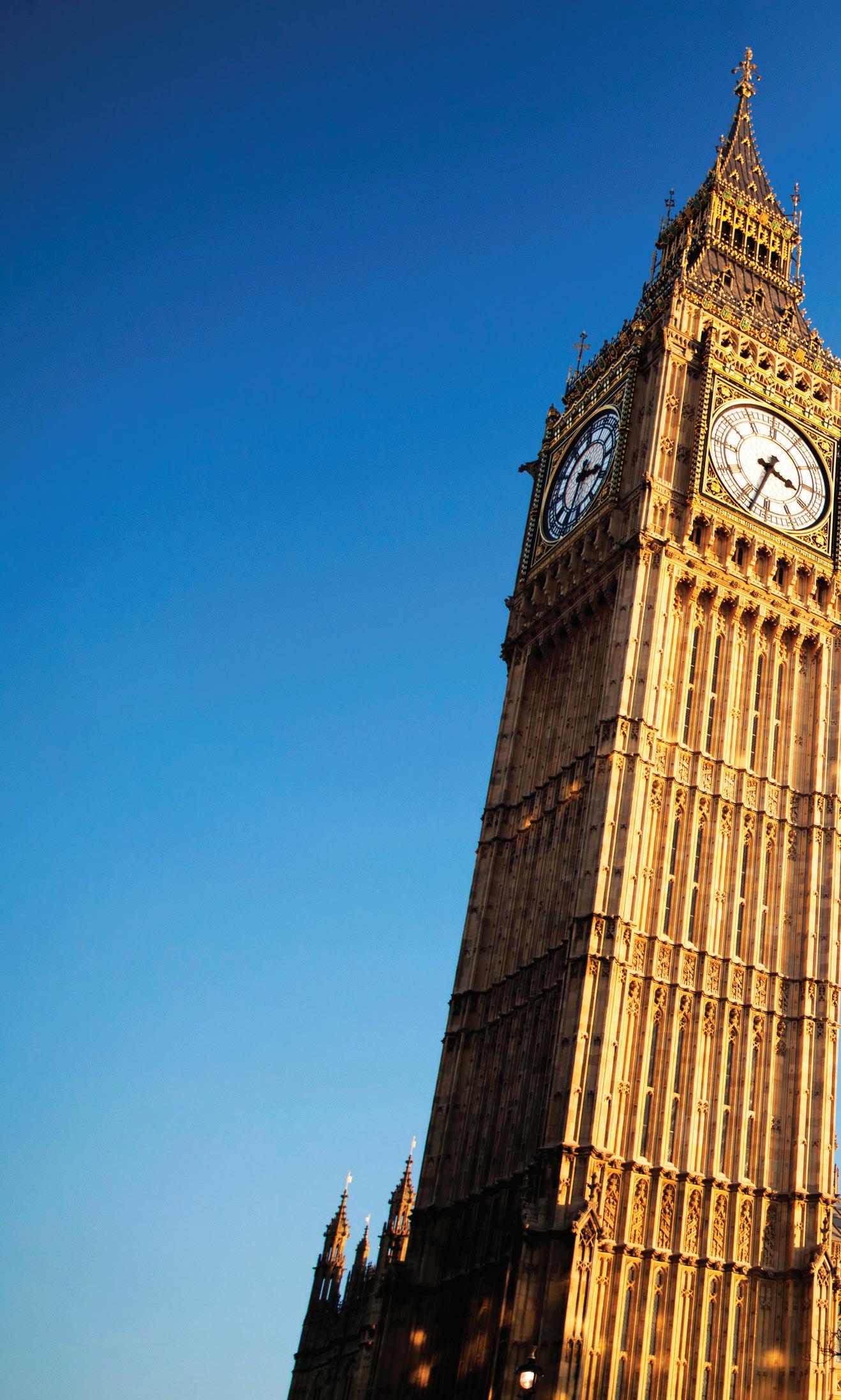
Subject Psychology
Department Lead Mr S Lebbon, BSc (Hons) MCCT MRSB PGCE Teacher i/c Psychology
Exam Board AQA
Course Number 7182
The course demands good communication and analytical skills. You will need to be able to read around the subject, analyse and summarise it orally and on paper. Most pupils have had no previous study of Psychology but come with a keen interest in why people behave as they do.
Who is the course suited to?
Psychology is the scientific study of the mind and behaviour so you will need to have a keen interest in people’s behaviour, be able and prepared to read about different approaches and theories and to present them in logical, analytical essays, using precise terminology. The course requirements now have a clear emphasis on scientific methods including knowledge of statistics, and it should be noted that most universities regard Psychology as a Science for entry requirements onto courses to reflect this. Therefore, as a result of this scientific emphasis, we recommend that pupils have achieved at least a Grade 7 in English, a Science and Mathematics at GCSE level, but more importantly, that they approach the course with a mature attitude to learning, as the department uses a flipped teaching approach.
What will be learnt? Which skills will be developed?
Transferable skills such as the ability to analyse, evaluate and apply knowledge to everyday situations. Knowledge of Research Methods, their strengths and weaknesses and basic statistical knowledge and application will also be learnt as well as some fundamental concepts that help to explain human behaviour.
What could I do at the end of my course?
How the mind works and how people behave in certain situations affects us all and all aspects of work. It can be of use in any career. Recently pupils have gone on to study a huge variety of courses at university ranging from; Forensic Psychology, Music Therapy, Law, Personnel, Physiotherapy, Teaching, Clinical Psychology, Management, Behavioural Economics, and even Dentistry!
Course Assessment
Paper 1: Introductory Topics in Psychology
• Compulsory content 1 – 4
• Written exam: 2 hours (33.3% of A Level)
• Mixture of multiple choice, short answer and extended writing
Paper 2: Psychology in Context
• Compulsory content 5 – 7
• Written exam: 2 hours (33.3% of A Level)
• Mixture of multiple choice, short answer and extended writing
Paper 3: Issues and Options in Psychology
• Compulsory content 8
• Optional content: one from option 1, one from option 2, one from option 3
• Written exam: 2 hours (33.3% of A Level)
• Mixture of multiple choice, short answer and extended writing


AT FRAMLINGHAM COLLEGE WE CELEBRATE EVERY INDIVIDUAL.
THERE IS NO TYPICAL FRAMLINGHAMIAN, NO SINGULAR PATH THAT WE TAKE.
We are academics, actors, musicians, expeditioners, sports people, innovators, scientists, ruminators, decision makers, story tellers, teammates, artists, fun lovers, nurturers and thought provokers. Often, we are many things within one.
BUT WE ARE ALL INDIVIDUAL, EACH WITH OUR OWN STORY.
Let’s see who you are...
FRAMLINGHAM COLLEGE SENIOR SCHOOL
Framlingham, Suffolk. IP13 9EY
+44 (0) 1728 723789
reception@framlinghamcollege.co.uk
framlinghamcollege.co.uk
